Winter is here! Check out the winter wonderlands at these 5 amazing winter destinations in Montana
- Travel Tips

What Is A DMO In Tourism
Published: December 12, 2023
Modified: December 28, 2023
by Renata Smyth
- Plan Your Trip
- Travel Guide
Introduction
When it comes to planning a trip or exploring a new destination, one of the first things travelers often turn to is a Destination Management Organization (DMO) for guidance and information. But what exactly is a DMO and what role do they play in the tourism industry? In this article, we will delve into the world of DMOs and uncover their significance in promoting and developing tourism.
A DMO can be defined as a body or organization that is responsible for overseeing and coordinating tourism initiatives in a specific destination. Its primary purpose is to attract visitors, drive tourism growth, and ensure the overall success and sustainability of a destination. DMOs work closely with various stakeholders, including government agencies, local businesses, tourism operators, and community organizations to create a unified approach towards destination management.
The main function of a DMO is to market and promote the destination to potential travelers. They act as the official representative of the destination, disseminating information about attractions, accommodations, activities, and events through various channels such as websites, social media, brochures, and tourism campaigns. By effectively showcasing the unique features and experiences a destination has to offer, DMOs inspire and motivate travelers to choose their destination over others.
Definition and Role of a DMO in Tourism
A Destination Management Organization (DMO) plays a vital role in the tourism industry by serving as the primary entity responsible for managing, promoting, and developing a destination. DMOs are typically non-profit organizations or government agencies that work towards enhancing the overall visitor experience and driving economic growth through tourism.
The primary role of a DMO is to act as a strategic partner and advocate for the destination. They collaborate with various stakeholders, such as local businesses, government bodies, community organizations, and tourism operators, to create a cohesive and unified approach towards destination management.
One of the key functions of a DMO is destination marketing. They are responsible for promoting the unique features, attractions, and experiences of a destination to potential visitors. This involves creating compelling marketing campaigns, developing informative content, utilizing digital platforms, and participating in trade shows and tourism events to attract and engage travelers.
Additionally, DMOs play a crucial role in destination development. They work with local communities and businesses to identify and develop tourism products and experiences that align with the destination’s strengths and market trends. This can include developing new attractions, improving infrastructure, enhancing visitor services, and supporting sustainable tourism practices.
Another significant aspect of a DMO’s role is destination research and planning. They gather and analyze data on visitor demographics, travel trends, market demand, and visitor satisfaction to make informed decisions and develop effective strategies. This research helps DMOs identify target markets, understand consumer preferences, and tailor marketing campaigns to attract the right audience.
A DMO also acts as a facilitator and coordinator for various events and initiatives within the destination. They collaborate with event organizers, tourism operators, and local organizations to plan and execute events, festivals, conferences, and other tourism-related activities. By organizing these events, DMOs contribute to the cultural and economic vibrancy of the destination, while also attracting visitors and generating revenue.
In summary, a DMO is an essential player in the tourism industry, working tirelessly to promote, develop, and manage a destination. Their role encompasses destination marketing, development, research, planning, and event coordination. By effectively fulfilling their responsibilities, DMOs contribute to the growth, sustainability, and success of a destination’s tourism sector.
Functions and Responsibilities of a DMO
A Destination Management Organization (DMO) is tasked with a range of important functions and responsibilities to ensure the successful management and promotion of a destination. Let’s explore some of the key functions and responsibilities fulfilled by DMOs:
- Destination Marketing: One of the primary responsibilities of a DMO is destination marketing. They are responsible for showcasing the unique attractions, experiences, and offerings of a destination to attract visitors. This involves developing marketing campaigns, creating promotional materials, and leveraging various channels such as websites, social media, and travel trade shows to reach a wide audience.
- Visitor Information Services: DMOs serve as a central hub for visitor information. They provide up-to-date and accurate information about the destination, including attractions, accommodations, transportation options, dining, and events. DMOs may operate visitor information centers, maintain informative websites, and offer assistance through email, phone, or chat services to ensure that visitors have access to the information they need.
- Tourism Development: DMOs play a crucial role in the development of the tourism industry within a destination. They work closely with local businesses, communities, and government agencies to identify opportunities for tourism growth. DMOs may support the development of new tourism products and experiences, provide guidance on infrastructure development, and facilitate collaboration between stakeholders to maximize the potential of the destination.
- Research and Planning: DMOs conduct research and analyze data to gain insights into the tourism market and visitor preferences. This includes collecting and analyzing visitor demographics, market trends, and visitor satisfaction data. By understanding the needs and expectations of travelers, DMOs can develop effective marketing strategies, identify target markets, and make informed decisions to enhance the visitor experience.
- Collaboration: DMOs foster collaboration among various stakeholders in the tourism industry. They work closely with local businesses, government agencies, community organizations, and tourism associations to develop partnerships and address common challenges. This collaboration ensures a coordinated and unified approach towards destination management, leading to enhanced visitor satisfaction and sustainable tourism development.
- Event and Conference Planning: DMOs often play a role in planning and organizing events, conferences, and festivals within the destination. These events not only attract visitors but also contribute to the destination’s cultural vibrancy and economic growth. DMOs may work with event organizers, secure funding, coordinate logistics, and promote the event to a wider audience to ensure its success.
- Sustainability and Responsible Tourism: DMOs are increasingly prioritizing sustainability and responsible tourism practices. They work to minimize the negative impacts of tourism on the environment, culture, and local communities. DMOs may implement initiatives such as waste management programs, support local and eco-friendly businesses, promote responsible tourism practices among visitors, and educate stakeholders about the importance of sustainable tourism.
These functions and responsibilities highlight the diverse and crucial role that DMOs play in managing and promoting a destination. By effectively fulfilling these responsibilities, DMOs contribute to the growth, sustainability, and success of the tourism industry in their respective destinations.
Importance of DMOs in Tourism Development
Destination Management Organizations (DMOs) play a pivotal role in the development of the tourism industry. Their efforts and initiatives have a significant impact on the growth, sustainability, and success of a destination. Let’s explore the importance of DMOs in tourism development:
- Strategic Planning: DMOs engage in strategic planning by conducting research, analyzing data, and identifying market trends. This enables them to develop effective strategies that align with the destination’s unique strengths and target the right audience. Strategic planning helps to maximize the destination’s tourism potential and drives sustainable growth.
- Destination Marketing: DMOs are responsible for marketing and promoting the destination to potential visitors. Through targeted marketing campaigns, digital platforms, and trade shows, DMOs showcase the destination’s attractions and experiences. Effective destination marketing not only attracts more tourists but also generates economic benefits for businesses and local communities.
- Economic Impact: The tourism industry has a significant economic impact, contributing to job creation, revenue generation, and regional development. DMOs facilitate tourism growth by collaborating with local businesses and supporting the development of tourism products and experiences. This leads to increased visitor spending, business opportunities, and overall economic prosperity in the destination.
- Enhanced Visitor Experience: DMOs strive to enhance the visitor experience by providing information, assistance, and support to tourists. They promote visitor-friendly services, ensure the availability of quality accommodations, and collaborate with local communities to offer authentic and enriching experiences. By focusing on the visitor experience, DMOs encourage repeat visits, positive reviews, and word-of-mouth recommendations, ultimately boosting the destination’s reputation.
- Destination Differentiation: In a competitive global tourism market, DMOs play a vital role in differentiating their destination from others. By highlighting unique features, cultural heritage, natural beauty, and authentic experiences, DMOs create a distinct identity for the destination. This differentiation attracts niche markets and positions the destination as a must-visit location, setting it apart from competitors.
- Sustainable Tourism: DMOs have a responsibility to promote and practice sustainable tourism. They work towards minimizing negative environmental and socio-cultural impacts while maximizing the positive benefits of tourism. By supporting eco-friendly initiatives, promoting responsible tourism practices, and engaging with local communities, DMOs contribute to the long-term sustainability of the destination.
- Stakeholder Collaboration: DMOs serve as a platform for collaboration and coordination among various stakeholders in the tourism industry. They bring together local businesses, government agencies, community organizations, and tourism operators to work collectively towards the development and management of the destination. This collaboration ensures a unified approach, enhances the destination’s competitiveness, and fosters a sense of community ownership.
The importance of DMOs in tourism development cannot be overstated. From strategic planning to destination marketing, economic impact to sustainable tourism practices, DMOs play a vital role in shaping the growth, sustainability, and success of destinations around the world.
DMOs and Destination Marketing
Destination Management Organizations (DMOs) play a crucial role in destination marketing. They are responsible for showcasing the unique attractions, experiences, and offerings of a destination to attract and engage potential visitors. Let’s explore how DMOs contribute to destination marketing:
Strategic Planning: DMOs engage in strategic planning to develop marketing strategies and campaigns that align with the destination’s goals and target markets. They conduct market research, analyze visitor trends, and identify the unique selling points of the destination. By understanding the target audience and market demand, DMOs can develop compelling marketing messages and initiatives that resonate with potential visitors.
Brand Development: DMOs are instrumental in developing and promoting the destination’s brand. They work to create a distinct identity that sets the destination apart from others in the highly competitive tourism industry. DMOs ensure that the destination’s brand reflects its unique culture, natural beauty, history, and experiences. Through consistent branding, DMOs create a recognizable and compelling image that attracts and resonates with travelers.
Content Creation: DMOs generate high-quality content to inform, inspire, and engage potential visitors. They produce a wide range of content, including website articles, blog posts, social media updates, videos, and photography. This content highlights the destination’s key attractions, activities, cultural experiences, and events. By providing valuable and engaging content, DMOs capture the attention of potential travelers and motivate them to choose the destination.
Marketing Collateral: DMOs create and distribute marketing collateral to promote the destination. This includes brochures, maps, visitor guides, and promotional materials. These materials provide comprehensive information about the destination’s attractions, accommodations, dining options, and transportation. DMOs ensure that the marketing collateral is readily available and easily accessible to potential visitors through visitor centers, travel agencies, trade shows, and digital platforms.
Online Presence: DMOs leverage digital platforms to reach and engage a global audience. They maintain informative and user-friendly websites that serve as a centralized resource for destination information. DMOs optimize their websites for search engines, ensuring that potential visitors can easily find relevant information. They also utilize social media channels, email marketing campaigns, and online advertising to promote the destination’s unique offerings, events, and deals.
Partnerships and Collaboration: DMOs collaborate with various stakeholders within the tourism industry to amplify their marketing efforts. They work with local businesses, tourism operators, hotels, restaurants, and attractions to develop cooperative marketing campaigns. By forming partnerships and engaging in cross-promotion, DMOs expand the reach of their marketing initiatives and create a cohesive and compelling message about the destination.
Trade Shows and Events: DMOs participate in trade shows, tourism fairs, and events to showcase the destination to travel industry professionals and potential visitors. They create visually appealing booths, provide informative materials, and engage in face-to-face interactions. These events offer DMOs the opportunity to network, establish connections, and market the destination to a wide range of stakeholders.
In summary, DMOs play a vital role in destination marketing. Through strategic planning, brand development, content creation, and online presence, DMOs effectively promote the unique offerings of the destination. By collaborating with stakeholders and participating in trade shows and events, DMOs amplify their marketing efforts and ensure that the destination stands out in the competitive tourism industry.
Collaboration between DMOs and Other Stakeholders
Collaboration is essential for the success of Destination Management Organizations (DMOs). DMOs work closely with various stakeholders, including government agencies, local businesses, tourism operators, and community organizations, to achieve the common goal of promoting and developing the destination. The collaboration between DMOs and other stakeholders brings numerous benefits and ensures the overall success of tourism initiatives. Let’s explore the importance of this collaboration:
Marketing and Promotion: DMOs collaborate with local businesses, tourism operators, and attractions to showcase the destination’s offerings. By partnering with these stakeholders, DMOs gain access to unique experiences, accommodations, and attractions that can be featured in their marketing efforts. This collaboration enhances the marketing material’s authenticity and attractiveness, enticing potential visitors to choose the destination.
Product Development: Collaborating with local businesses and tourism operators allows DMOs to identify and develop new tourism products and experiences. By working together, stakeholders can assess market demand, identify gaps, and create innovative offerings that align with the destination’s strengths. This collaboration not only enhances the destination’s competitiveness but also provides visitors with unique and memorable experiences.
Infrastructure and Investment: DMOs collaborate with government agencies and private investors to secure funding and support infrastructure development. This partnership allows the destination to improve transportation networks, enhance visitor facilities, and develop necessary infrastructure that supports tourism growth. By working together, DMOs and stakeholders can attract investment and secure resources for sustainable tourism development.
Sustainable Tourism Practices: Collaboration between DMOs and stakeholders is crucial for promoting sustainable tourism practices. By engaging local businesses, community organizations, and government agencies, DMOs can advocate for responsible tourism initiatives. This collaboration includes implementing environmental protection measures, supporting local businesses that follow sustainable practices, and educating visitors on responsible behavior during their stay. By working together, DMOs and stakeholders can ensure the long-term sustainability of the destination.
Community Involvement: DMOs collaborate with local communities to ensure their active participation and representation in tourism development. By involving communities in decision-making processes, DMOs gain valuable insights into local culture, heritage, and traditions. This collaboration fosters a sense of ownership and pride within the community, while also ensuring that the destination’s tourism initiatives contribute to the overall well-being of the local population.
Research and Data Sharing: Collaboration between DMOs and stakeholders involves sharing research findings, data, and market insights. This collaboration provides a comprehensive understanding of visitor preferences, trends, and demands. By pooling resources and knowledge, DMOs and stakeholders can make informed decisions, develop effective strategies, and tailor tourism experiences to meet the needs of the target audience.
Advocacy and Representation: DMOs act as advocates and representatives of the destination’s tourism industry. By collaborating with stakeholders, DMOs can amplify the voices and concerns of the industry. This collaboration allows for collective decision-making, lobbying for favorable policies, and addressing common challenges. Working together strengthens the industry’s position, ensuring that the destination’s tourism sector receives the support and recognition it deserves.
Effective collaboration between DMOs and stakeholders is crucial for the successful management and sustainable development of a destination. By aligning their efforts, sharing resources, and fostering strong partnerships, DMOs and stakeholders can enhance the destination’s competitiveness, provide exceptional visitor experiences, and maximize the positive impact of tourism on the destination and its communities.
Challenges Faced by DMOs in Tourism
Destination Management Organizations (DMOs) play a vital role in promoting and developing tourism in a destination. However, they face numerous challenges that can impact their effectiveness and hinder their ability to achieve their objectives. Let’s explore some of the common challenges faced by DMOs:
- Funding: One of the primary challenges for DMOs is securing adequate funding. DMOs often rely on limited resources, and competing demands for funding from various stakeholders can make it difficult to allocate sufficient funds for marketing, infrastructure development, and other tourism initiatives. Limited funding can restrict the scope and effectiveness of DMOs’ activities.
- Seasonality: Many destinations experience seasonality, with periods of high tourist arrivals followed by periods of low or off-peak seasons. This fluctuation in visitor numbers can pose challenges for DMOs in terms of managing resources, staffing, and maintaining a consistent level of service throughout the year. DMOs must develop strategies to attract visitors during off-peak seasons and promote a more balanced and sustainable tourism flow.
- Competition: The tourism industry is highly competitive, and destinations around the world are vying for visitors’ attention. DMOs face the challenge of differentiating their destination from competitors and showcasing its unique selling points. With advancements in technology, DMOs also need to stay updated with the latest digital marketing strategies to effectively reach and engage potential visitors in a crowded marketplace.
- Community Engagement: Engaging and involving the local community in tourism initiatives can be a complex task. DMOs must navigate diverse interests, varying levels of community support, and potential conflicts between residents and tourism-related businesses. Building strong relationships with the community and addressing their concerns is crucial to ensure that tourism development benefits the local population and enjoys their support.
- Sustainability: DMOs face the challenge of balancing the growth of tourism with environmental and socio-cultural sustainability. They need to advocate for responsible tourism practices, foster sustainable development, and minimize the negative impacts of tourism on the environment and local communities. This requires collaboration with stakeholders, implementing sustainable initiatives, and educating visitors about responsible behavior.
- Changing Travel Patterns and Trends: The tourism industry is constantly evolving, with changing travel patterns, emerging markets, and evolving consumer preferences. DMOs need to stay updated with the latest trends, adapt to changing visitor demands, and remain innovative in their marketing and product development strategies. Keeping pace with these changes can pose challenges for DMOs in terms of resource allocation and decision-making.
- Infrastructure and Destination Management: Managing the destination’s infrastructure and coordinating efforts among various stakeholders can be challenging for DMOs. They need to collaborate with local businesses, government agencies, and tourism operators to ensure the development and maintenance of quality infrastructure, effective transportation networks, and visitor facilities. Overcoming bureaucratic processes and maintaining a cohesive approach to destination management can be a complex task.
- Measuring Performance and Return on Investment: DMOs face the challenge of measuring the impact of their marketing efforts and quantifying the return on investment. Evaluating the effectiveness of marketing campaigns, tracking visitor satisfaction, and assessing the economic impact of tourism initiatives requires robust measurement tools and data analysis. Lack of accurate performance indicators can hinder DMOs’ ability to refine their strategies and secure future funding.
Despite these challenges, DMOs play a pivotal role in tourism development. By addressing these challenges proactively and seeking innovative solutions, DMOs can overcome obstacles and continue to drive growth, sustainability, and success in the destinations they represent.
Destination Management Organizations (DMOs) are central players in the tourism industry, responsible for promoting, developing, and managing destinations. Their role encompasses various functions and responsibilities that contribute to the growth, sustainability, and success of a destination’s tourism sector.
We explored the definition and role of DMOs in tourism, emphasizing their strategic planning, destination marketing, visitor information services, tourism development, research, and collaboration with stakeholders. DMOs play a crucial role in marketing and promoting the destination, enhancing the visitor experience, and driving economic growth through tourism.
However, DMOs face challenges such as limited funding, seasonality, competition, community engagement, sustainability, changing travel patterns, infrastructure management, and measuring performance. These challenges require proactive solutions and collaboration with stakeholders to ensure the long-term success and sustainability of the destination’s tourism industry.
Despite these challenges, DMOs continue to play an integral role in shaping the tourism landscape. Through collaboration and cooperation with government agencies, local businesses, tourism operators, communities, and other stakeholders, DMOs can overcome obstacles and achieve their goals.
DMOs have the opportunity to showcase the unique features, cultural heritage, and natural beauty of a destination. By leveraging their marketing expertise, adopting sustainable practices, engaging the community, and staying attuned to changing trends, DMOs can attract visitors, drive economic growth, and contribute to the overall development of the destination.
In conclusion, DMOs are key drivers of tourism development. Their strategic planning, destination marketing, and collaboration with stakeholders are essential in promoting the destination, creating memorable visitor experiences, and ensuring the sustainable growth and success of the destination’s tourism industry.

- Privacy Overview
- Strictly Necessary Cookies
This website uses cookies so that we can provide you with the best user experience possible. Cookie information is stored in your browser and performs functions such as recognising you when you return to our website and helping our team to understand which sections of the website you find most interesting and useful.
Strictly Necessary Cookie should be enabled at all times so that we can save your preferences for cookie settings.
If you disable this cookie, we will not be able to save your preferences. This means that every time you visit this website you will need to enable or disable cookies again.

- Diversity Inclusion
- Advisory Panel
- Our Audience
- Private Tourism Academies
- Tourism Ambassador Training
- Destination Training
- Tourism Keynote Speakers
- Sponsorship
- Business Class Podcast
- Skill & Knowledge
- Product Training
- Our Technology
- Become An Instructor
- Sponsorship Opportunities
- Product Training & Promotion
- Hire Us To Speak
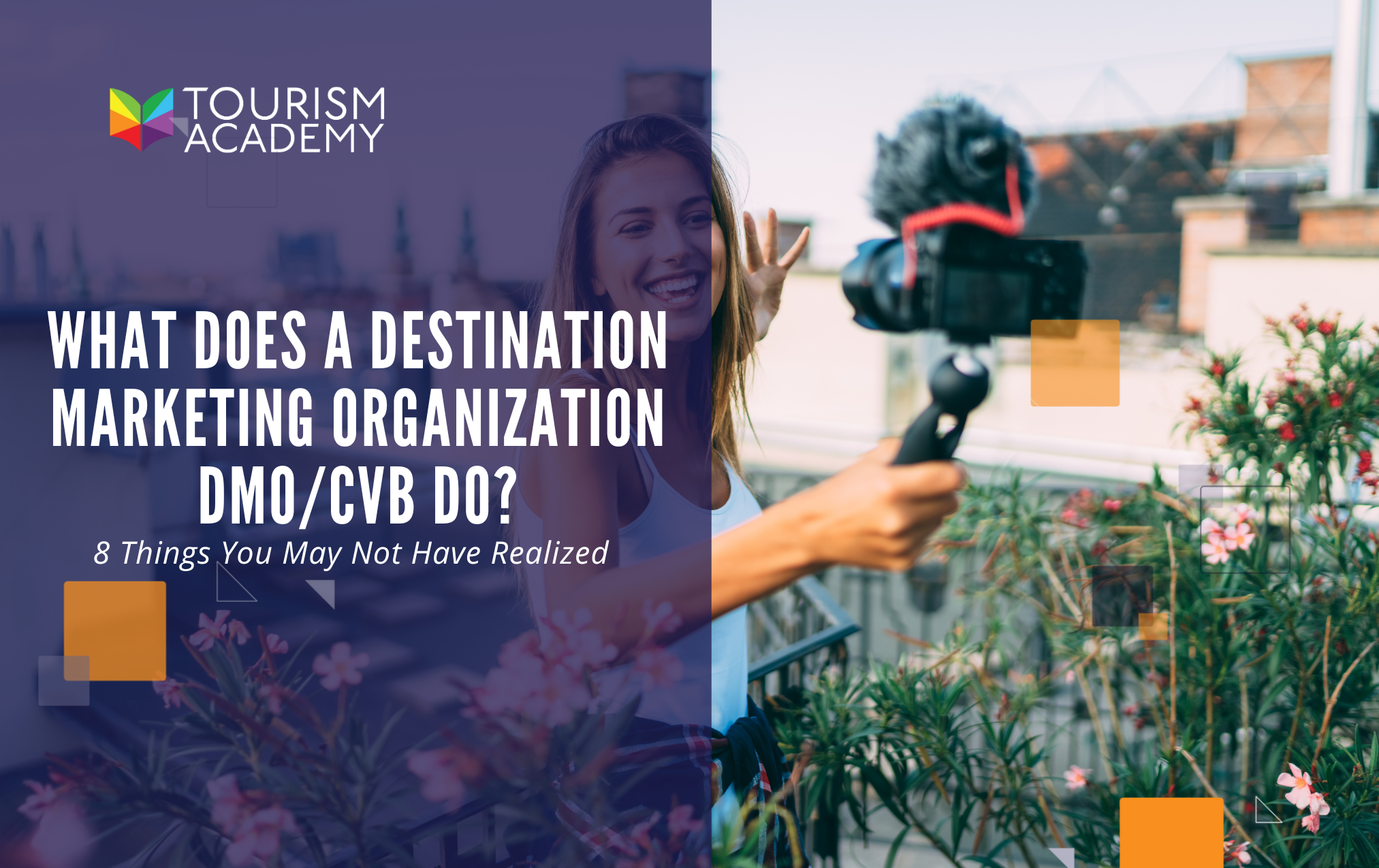
What does a destination marketing organization do?
A Destination Marketing Organization (DMO) or Convention & Visitors Bureau (CVB) is responsible for promoting a specific destination, such as a city, region, or country, to attract visitors and boost tourism. Their primary goal is to increase visitor numbers and enhance the economic impact of tourism in the area.
Here are some of the critical functions and activities typically undertaken by DMOs and CVBs:
Destination Promotion: DMOs promote the destination to potential visitors through marketing and advertising campaigns. They highlight the destination's unique attractions, experiences, landmarks, events, and cultural aspects to create interest and generate visitor demand.
Marketing and Advertising: DMOs engage in various marketing activities to reach target audiences. These activities include print and digital advertising, social media campaigns, website development, search engine optimization, public relations, and participation in travel trade shows and events.
Visitor Services and Information: DMOs provide information and resources to visitors, such as visitor centers, brochures, maps, and websites. They assist tourists in planning their trips, recommending attractions, accommodations, and dining options, and providing general destination information.
Convention and Event Support: Many DMOs also focus on attracting conventions, conferences, trade shows, and other events to their destination. They work closely with event organizers, assisting with venue selection, logistics, accommodations, transportation, and promotional support.
Partnerships and Collaboration: DMOs often collaborate with local businesses, tourism operators, hotels, restaurants, and other stakeholders to develop and promote the destination collectively. These partnerships aim to create a cohesive and compelling visitor experience.
Research and Data Analysis: DMOs conduct market research and analyze visitor trends, demographics, and preferences data. This information helps identify target markets, understand visitor behavior, and make informed decisions about marketing strategies.
Advocacy and Stakeholder Support: DMOs advocate for tourism-related policies and initiatives that benefit the destination. They work with government bodies, tourism associations, and local communities to ensure sustainable tourism development and address any industry challenges or issues.
Destination Development: DMOs play a role in shaping the development of the destination by providing input on infrastructure improvements, tourism product development, and visitor experience enhancements. They may also collaborate with local authorities and businesses to identify and address gaps in the tourism offering.
Overall, DMOs and CVBs act as the central coordinating body for destination marketing efforts, aiming to increase visitor numbers, prolong visitor stays, and maximize the economic impact of tourism in the area they represent.
Leave a comment
Related articles, leadership development with dr. eric canny, insights from fred dixon, ceo of nyc tourism and chair of destinations international, exploring destination advocacy with jack johnson, chief advocacy officer at destinations international.
Sign in, Save Money
Sign in to save 10% or more with a free DMC membership
- Individual Bookings
- Hosted Buyer Programmes
- Upcoming Events
- Daily Blogs
The Difference Between DMC and DMO – Unveiling the Varied Roles and Functions
- 4 mins read

DMCs vs. DMOs: Unveiling the Distinctive Roles in Travel Management and Promotion
The pivotal role of dmcs (destination management companies), key characteristics of dmcs:, exploring dmos (destination marketing organizations), key characteristics of dmos:, why both dmcs and dmos matter, in conclusion: maximizing travel with dmcs and dmos, popular posted, unlocking success with destination management company: a deep dive into their vital role.
- 4 min. to read
What is a Destination Management Company (DMC)?
- 5 min. to read
What Are The Different Types Of DMOS
- 12 min. to read
USA Today scoops up another travel asset on life support: This time Tripology
- 3 min. to read
Unlocking Business Success: The Multifaceted Benefits of B2B Travel Agencies
- 9 min. to read
Sponsor By DMC
Search premium Corporate DMC´s Incentive DMC´s, Event DMC´s, Travel DMC´s.

Experience Qatar Destination Management Company - Qatar
- Tour Operators
Destination Management Company - Dubai
This adventure tour is one of the most comprehensive evening desert safaris available in Dubai to discover the region´s untouched desert wilderness. Besides the exhilarating ever 4X4 dune bash.
Newsletter Signup
With over 6,000 destination suppliers we are sure we will be able to connect you with the perfect supplier that matches your needs.
- Trending Destinations
- Africa 65 partners
- Qatar 7 partners
- Brazil 38 partners
- Canary Islands 07 partners
- Dubai 09 partners
- Egypt 49 partners
- India 484 partners
- Indonesia 35 partners
- Italy 179 partners
- Kenya 72 partners
- Latin America 39 partners
- London 19 partners
- Maldives 26 partners
- Morocco 68 partners
- Nepal 157 partners
- North America 05 partners
- South America 28 partners
- Spain 305 partners
- UK 118 partners
- UAE 12 partners
- Bora Bora 59 properties
- Phuket Province 5,500 properties
- >Bora Bora 59 properties
Be Found, Be Connected, Be Discovered! Your Gateway to a World of Opportunities for Destination DMCs and Travel Services
- United Kingdom
- [email protected]
- + 44(0)781 56 92694
- How we work
- Privacy Policy
- Terms and Conditions
Please fill the required fields*
Recover Password
Lost your password? Please enter your email address. You will receive a link to create a new password via email.
Get New Password
Don't have an account? Sign Up
Already have an account? Please login Here
UN Tourism | Bringing the world closer

Competitiveness
- Market Intelligence
Policy and Destination Management
- Product Development
share this content
- Share this article on facebook
- Share this article on twitter
- Share this article on linkedin
UN Tourism works to provide guidance and share good practices on policies and governance models aimed to effectively support the tourism sector at the different levels: national, regional and local.
The development and management of tourism destinations requires a holistic approach to policy and governance.
Governance has two specific dimensions:
- Directive capacity of government , determined by coordination and collaboration as well as by the participation of networks of stakeholders.
- Directive effectiveness, determined by institutional skills and resources that support the ways in which processes are conducted to define goals and search for solutions and opportunities for relevant stakeholders, and by the provision of tools and means for their joint execution.
In this sense, UN Tourism works to support its Members in their efforts to develop efficient governance models / structures and policies, focusing among others on:
- Tourism policy and strategic planning
- Governance and vertical cooperation, i.e. national-regional-local levels
- Public Private Partnership (PPP)
Destination Management
Destination management consists of the coordinated management of all the elements that make up a tourism destination. Destination management takes a strategic approach to link-up these sometimes very separate elements for the better management of the destination. Joined up management can help to avoid overlapping functions and duplication of effort with regards to promotion, visitor services, training, business support and identify any management gaps that are not being addressed.
Destination management calls for a coalition of many organizations and interests working towards a common goal, ultimately being the assurance of the competitiveness and sustainability of the tourism destination. The Destination Management Organization’s (DMO) role should be to lead and coordinate activities under a coherent strategy in pursuit of this common goal.
Though DMOs have typically undertaken marketing activities, their remit is becoming far broader, to become a strategic leader in destination development. This is a vital ingredient for success in every tourism destination and many destinations now have DMOs to lead the way.
From a traditionally marketing and promotion focus the trend is to become leading organizations with a broader mandate which includes strategic planning, coordination and management of activities within an adequate governance structure with the integration of different stakeholders operating in the destination under a common goal. Destinations wherein such an organization is not still in place are increasingly creating or plan to create a DMO as the organizational entity to lead the way.
UN Tourism has identified three areas of key performance in destination management at DMO level: Strategic Leadership, Effective Implementation and Efficient Governance.
UN Tourism supports its Members and Destination Management/Marketing Organizations through the UN Tourism.QUEST - a DMO Certification System. UN Tourism.QUEST promotes quality and excellence in DMOs planning, management and governance of tourism, by means of capacity building. UN Tourism.QUEST Certification evaluates the three areas of key performance in destination management at DMO level: Strategic Leadership, Effective Implementation and Efficient Governance. With a training and capacity building component, UN Tourism.QUEST is a strategic tool which allows the DMOs to implement an improvement plan to achieve the criteria and standards of the Certification with the aim of enhancing their management processes and thus contribute to the competitiveness and sustainability of the destinations they represent.
Events & Publications
- International Seminar on Destination Management
- 2nd Conference on Destination Management in the Mediterranean
- 6th International Conference on Destination Management
UN Tourism Guidelines for Institutional Strengthening of Destination Management Organizations (DMOs) – Preparing DMOs for new challenges
Many factors account for the increased focus on effective destination management, all of them urging destination management organizations (DMOs) to face and adapt to new challenges. From traditional marketing and promotion boards the trend is for these entities to increasingly enlarge their scope to become all embracing DMOs, aiming to enhance the competitiveness and sustainability of destinations within a harmonious relationship between the residents and visitors.
Competitiveness Committee (CTC)
The Committee on Tourism and Competitiveness (CTC) is one of the technical committees of the UN Tourism and it is a subsidiary organ of the Executive Council . The Committee was established at the 95th session of the Executive Council in Belgrade, Serbia in May 2013 (CE/DEC/7(XCV). Its Rules of Procedure and the composition were approved by the Executive Council at its 96th session (Victoria Falls, Zimbabwe, August 2013) (CE/DEC/9(XCVI).
Since its establishment in 2013, CTC focused its work mainly on assessing the state of knowledge on the basic concept of “ tourism competitiveness ” and identifying its key factors . This process has also included identifying, developing and harmonizing concepts, models and operational definitions used in the tourism value chain .
Work priorities
(a) To support the Organization in fulfilling its normative role;
(b) To provide a dialogue mechanism between the public and private tourism stakeholders and academia to give guide in building and strengthening tourism competitiveness policies and strategies; and
(c) To build synergies and strategic alignments in the harmonization of the related activities of the Secretariat as well as other collaborating organizations/entities in order to ensure consistency and consensus in the delivery of the outputs and reinforce the official position of the Organization.
Provide UNWTO Members and other tourism stakeholders with a comprehensive and concise, operational, applicable and globally relevant conceptual framework to set the scene and contribute to establish a common ground for a clear harmonized understanding of:
i) concepts, models and operational definitions used in the tourism value chain;
ii) the quantitative and qualitative factors that explain competitiveness at the destination level which may be translated into technical guidelines facilitating a methodology for destinations to identify and evaluate their own factors of competitiveness.
As an outcome of the work of the CTC, the 22 nd Session of the General Assembly held in Chengdu, China (11-16 September 2017) adopted as Recommendations key definitions. Along with these definitions the Committee also focused on identifying the key quantitative and qualitative factors for “tourism competitiveness ” under two categories: i) governance, management and market dynamics, and ii) destination appeal, attractors, products and supply.
Full list of definitions adopted by the 22 nd Session of the General Assembly held in Chengdu, China (11-16 September 2017)
As part of the work of the UNWTO Committee on Tourism and Competitiveness (CTC) in its mandate for the period 2015-2019 prepared a paper on " Tourism Policy and Strategic Planning " which delves into this factor for tourism competitiveness. This paper (available below in pdf) aims to:
- Provide UNWTO Members with a comprehensive understanding on national tourism policies and contribute to their successful formulation and implementation;
- Explore key areas which need to be addressed in tourism policy and strategic planning in order to ensure the competitiveness and sustainable development of tourism;
- Assess the key areas addressed by UNWTO Members in their tourism policies and provide case studies to illustrate key elements of a sound tourism policy; and
- Serve as a practical tool for UNWTO Members and tourism policymakers by including a set of recommendations.
Composition of the CTC (2019-2023)
Full Members
Bahamas Bahrain Brazil Fiji (Vice-chair) India Israel Kenya Republic of Moldova Senegal (Chair)
Representative of the Associate Members Macao, China (2019-2021) Puerto Rico (2021-2023)
Representative of the Affiliate Members FITUR, Spain (2019-2021) Asociación Empresarial hotelera de Madrid (AEHM), Spain (2021-2023)
Meetings of the CTC:
1st Meeting: 25 August, 2013, Victoria Falls, Zambia /Zimbabwe (during 20th UN Tourism General Assembly) 1st Virtual Meeting: 27 March, 2014 2nd Virtual Meeting: 3 July, 2014 3rd Virtual Meeting: 22 October, 2014 2nd Meeting: 28 January, 2015, Madrid, Spain 3rd Meeting: 13 September, 2015, Medellin, Colombia (during 21st UN Tourism General Assembly) 4th Meeting: 22 January, 2016, Madrid, Spain 4th Virtual Meeting: 21 April, 2016 5th Meeting: 20 January, 2017, Madrid, Spain 5th Virtual Meeting: 2 March, 2017 6th Meeting: 11 September, 2017, Chengdu, China (during 22nd UN Tourism General Assembly) 7th Meeting: 19 January, 2018, Madrid, Spain 8th Meeting: 10 September 2019, Saint Petersburg, Russian Federation (during 23rd UN Tourism General Assembly) 9th Meeting: 24 January, 2020, Madrid, Spain 10th Virtual Meeting: 30 July 2020 11th CTC Meeting: 30 November 2021, Madrid, Spain (during the 24th UN Tourism General Assembly) 12th Virtual Meeting: 12 September, 2022

11th CTC Meeting: 30 November 2021, Madrid, Spain
During the 24th un tourism general assembly.

Download PDF
- Position Paper on Tourism Policyand Strategic Planning
- UN Tourism Tourism Definitions
- Composition of the Committee on tourism and competitiveness
- What Is A Destination Marketing Organization (DMO)?
- Marketing Company
- Marketing Tips

So, What is Destination Marketing?
How will destination marketing help our organization, what is a destination marketing organization.
Ready to Collaborate? Contact Us!
April 16, 2024, april 17, 2024, april 18, 2024, april 22, 2024, april 23, 2024, april 24, 2024, april 25, 2024, april 29, 2024, april 30, 2024, recent tips.

Ultimate Email Marketing Tips for NY Businesses

Top Digital Marketing Services for Long Island

How to Craft Winning Content Marketing in NY

Best Social Media Platforms for NY Education

Top 5 SEO Strategies for Commack Auto Shops

Ultimate Guide to Shopify SEO in New York 2024
Explore topics.
Business Marketing Tips
Accounting Marketing Tips
Auto Shop Marketing Tips
Bank Marketing Tips
Construction Marketing Tips
Crypto Marketing Tips
Cyber Security Marketing Tips
Dentist Marketing Tips
Doctor Marketing Tips
Education Marketing Tips
Engineer Marketing Tips
Fashion Marketing Tips
Food Marketing Tips
Healthcare Marketing Tips
Hotel Marketing Tips
Insurance Marketing Tips
Landscaping Marketing Tips
Law Firm Marketing Tips
Loan Marketing Tips
Manufacturing Marketing Tips
Medical Marketing Tips
Music Marketing Tips
Plumbing Marketing Tips
Political Marketing Tips
Real Estate Marketing Tips
Restaurant Marketing Tips
Salon Marketing Tips
Solar Marketing Tips
eCommerce Marketing Tips
Shopify Marketing Tips
eMail Marketing Tips
Holiday Marketing Tips
Black Friday Marketing Tips
Halloween Marketing Tips
Thanksgiving Marketing Tips
Marketing Agency Tips
Miscellaneous Marketing Tips
Pay-Per-Click Advertising Tips
Social Media Marketing Tips
Web Design Tips

Looking for a reliable digital marketing agency?
Other digital marketing tips, is your christmas sales strategy in place, happy hanukkah from lead marketing strategies, what is a marketing manager definition, skills, salary, reviews & testimonials.
We are very pleased with the feedback our customers have left on TrustPilot.
These guys are like website super...
These guys are like website super heroes with their web development and SEO. They have truly been a blessing to our entire sales team and we look forward to looking at this quarters earnings which have significantly increased over the course of the year
Evan Gardiner
Search engine optimization was....
Search Engine Optimization was something I knew about but never knew what I needed to see the results I wanted. I tried doing it on my own for about a year and didn't see anything. They came in and after 3 months I was receiving phone calls from prospects. They are great at what they do.
Marketing isn't something I am good...
Marketing isn't something I am good at so I knew I needed help . LMS helped me understand each service and how it would benefit my business. They are the people everyone should have on their marketing team
Alfie Turner
A friend of mine recommended lead….
A friend of mine recommended Lead Marketing Strategies. I really felt like my business was hitting rock bottom and I didn't know what else to do. From our first call I felt confident they would be able to get my sales up to what they where before the pandemic , and as promised they did. I can't even begin to tell you how happy I am with their services
Mohammed Bull

Wait! Don't forget to book your free discovery call!
Get revenue driven results. reach out to us., search lead marketing strategies.

Do you want better rankings, revenue and results?
We are excited to offer our help in achieving your marketing goals. Please schedule a free discovery call with us today, and together we'll create the perfect strategy for your success.
Behind the Shift From Destination Marketing to Destination Management

VisitDallas + Skift
January 24th, 2019 at 10:27 AM EST
The role of destination marketing organizations (DMOs) is evolving and expanding into destination management to elevate the customer experience more intentionally.
VisitDallas
This sponsored content was created in collaboration with a Skift partner.
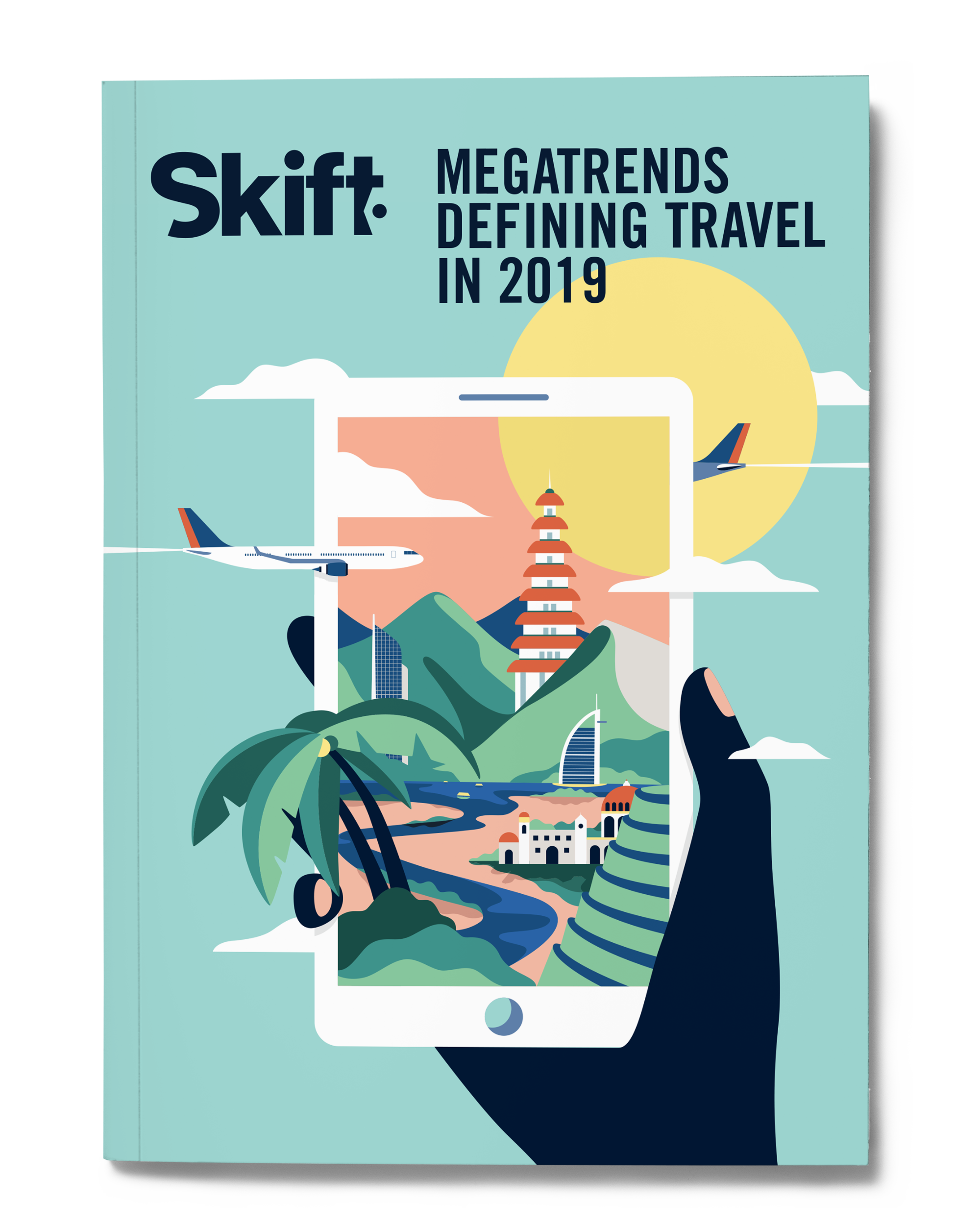
Download your copy of Skift Megatrends 2019
We recently released our annual travel industry trends forecast, Skift Megatrends 2019 . You can read about each of the trends on Skift, or download a copy of our magazine here .
Today, leisure and business travelers are sharing their experiences over multiple online channels, and in doing so, they’re taking over the promotion of the destination, for better or worse, on a scale far greater than any tourism board could.
As such, the most progressive DMOs are developing new partnerships with local organizations to improve the destination experience, based on global trends reshaping consumer expectations in the global visitor economy. So much so, that many destination leaders are now calling themselves “DMMOs” — destination marketing and management organizations.
That shift is manifested in many different ways. VisitDallas, for example, developed the Margarita Mile by creating a collection of top bars and restaurants that each celebrate the frosty cocktail in innovative ways.
Through the destination management initiative, VisitDallas staked a claim that Dallas is the “Official Home of the Frozen Margarita,” as the frozen margarita machine was invented by Dallas restaurateur Mariano Martinez in 1971. However, the Margarita Mile is much more than a collection of the best and most brazen margaritas in the city, conveniently located in a colorful mobile application. The app also helps visitors discover great neighborhoods, restaurants, and bars across the region that they may have never found otherwise.
In another very different example of destination management, VisitDallas built a statewide coalition of tourism and non-travel-industry partners to successfully defeat discriminatory legislation that would have degraded the visitor experience for convention attendees visiting the city.
At the end of the day, destination management is about customer experience. Just like any other industry, destination brands are prioritizing a customer-centric approach to compete in a national or global marketplace.
VisitDallas Curates the Customer Experience From Inside-Out
According to Phillip Jones, president and CEO of VisitDallas, the destination marketing organization views customer experience as over-delivering on what people expect, while bringing to life all of the surprising little touches along the way. In 2016, VisitDallas developed an entire department — and a C-level position — around this concept, making it the first DMO in the country to move in this direction. It’s putting visitor experience at the top of everything it does by becoming a much more involved concierge for the city.
In effect, the organization is moving from an information curator to an experience curator by leveraging its knowledge of global tourism to drive innovation in customer service locally.
“VisitDallas is committed to making the total visitor experience our number one priority,” said Jones. “We are hiring top talent within, as well as training all frontline hospitality employees to deliver on memorable moments and top shelf customer service.”
The department works with industry partners including airlines, nightlife, shopping destinations, hotels and resorts, arts and culture facilities, attractions, and more to collaborate and provide the best experience for all visitors.
VisitDallas goes beyond just getting a visitor to their city. It strives to build an overall experience that keeps them coming back and sharing their stories with family and friends.
For example, in an effort to truly drive the experience design, VisitDallas partnered with Southwest Airlines to build the Customer Service Master Class, “It’s Hospitality Y’all,” to train front-line hospitality employees on how to best create and deliver on the airline’s customer experience. The immersive one-day event brought together everyone from restaurant service staff to hotel employees to learn how to deliver a unique and inclusive experience from some of the best in the business.
The training encourages hospitality employees to go above and beyond to ensure visitors coming to Dallas are greeted with the Southern Hospitality the city is known for, and feel at home from the minute they step off a plane, sit down at a restaurant, or walk into a hotel lobby. The customer service training has pop-up sessions throughout the year and culminates with an annual Master Class at Southwest Airlines.
Expert Leadership Takes the Experience to the Next Level
To ensure the success of the VisitDallas Customer Experience department, VisitDallas CEO Phillip Jones brought in a hospitality expert to completely disrupt the destination management sphere. Renee McKenney was hired as chief experience officer (CXO), and brings nearly three decades in the hospitality field to VisitDallas, most recently working as national sales director for Disney Destinations – the Walt Disney Company.
McKenney believes there are three key elements to delivering a great customer experience: listening, discovering, and personalizing. By working with visitors and listening to and understanding their needs, VisitDallas is able to craft trips based on individual motivators.
Looking ahead, the future state-of-the-art Visit- Dallas Experience Center in the newly expanded Klyde Warren Park, is revolutionizing the traditional Visitor Center — blending best-in-class customer service with interactive technology that tells the story of Dallas. Using a variety of mixed reality platforms, the Experience Center will immerse visitors in a personalized journey unprecedented in North America.
The design and construction of the 20,000-square- foot pavilion, which will house the Experience Center, is scheduled to begin in 2019, with completion expected in 2022.
VisitDallas aims to design all kinds of experiences that leave a long-lasting impression. Whether you are a native Texan or from hundreds of miles away, Dallas has a way of always coming to top of mind.
Dallas brothers Jason and Michael Castro, of “American Idol” fame and the band CASTRO, were so inspired by the experiences they’ve had in their city, they worked with VisitDallas to write the song “Forever Texas.”
“We wanted a song to represent our city, and CASTRO was the perfect voice to capture Dallas’ essence in a catchy tune,” said Frank Librio, chief marketing officer of VisitDallas. “They have an incredible story that represents Dallas’ can-do attitude. We are excited to have them as ambassadors to our city and think it will be a song everyone will be singing along to.”
Now, visitors and locals alike can sing along and recount all their BIG experiences. To top it off, there is a music video that features CASTRO’s favorite Texas spots, from the Deep Ellum neighborhood, to the State Fair of Texas at Fair Park, green space in Klyde Warren Park, and margaritas at Beto & Son in foodie heaven, Trinity Groves. Check the video out here .
This content was created collaboratively by VisitDallas and Skift’s branded content studio, SkiftX .
Have a confidential tip for Skift? Get in touch
Tags: dallas , destinations , megatrends , megatrends 2019
Destination Marketing Organization
- Living reference work entry
- Latest version View entry history
- First Online: 29 March 2022
- Cite this living reference work entry
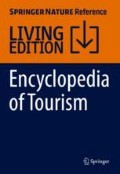
- Tony Tse 3
87 Accesses
This is a preview of subscription content, log in via an institution to check access.
Access this chapter
Institutional subscriptions
Dodds, R., and R. Butler. 2019. The phenomena of overtourism. International Journal of Tourism Cities 5 (4): 519–528.
Article Google Scholar
Dredge, D. 2016. Are DMOs on a path to redundancy? Tourism Recreation Research 41: 348–353.
Morrison, A. 2013. Marketing and managing tourism destinations . Oxon: Routledge.
Book Google Scholar
Vargas, A. 2020. Covid-19 crisis: A new model of tourism governance for a new time. Worldwide Hospitality and Tourism Themes 12: 691–699.
Download references
Author information
Authors and affiliations.
The Hong Kong Polytechnic University, Kowloon, China
You can also search for this author in PubMed Google Scholar
Corresponding author
Correspondence to Tony Tse .
Editor information
Editors and affiliations.
School of Hospitality Leadership, University of Wisconsin-Stout, Menomonie, WI, USA
Jafar Jafari
School of Hotel and Tourism Management, The Hong Kong Polytechnic University, Hong Kong, Hong Kong
Honggen Xiao
Section Editor information
Faculty of Tourism and Graduate School of Tourism, Wakayama University, Wakayama, Japan
Kumi Kato Ph.D
Rights and permissions
Reprints and permissions
Copyright information
© 2021 Springer Nature Switzerland AG
About this entry
Cite this entry.
Tse, T. (2021). Destination Marketing Organization. In: Jafari, J., Xiao, H. (eds) Encyclopedia of Tourism. Springer, Cham. https://doi.org/10.1007/978-3-319-01669-6_56-2
Download citation
DOI : https://doi.org/10.1007/978-3-319-01669-6_56-2
Received : 15 February 2021
Accepted : 15 May 2021
Published : 29 March 2022
Publisher Name : Springer, Cham
Print ISBN : 978-3-319-01669-6
Online ISBN : 978-3-319-01669-6
eBook Packages : Springer Reference Business and Management Reference Module Humanities and Social Sciences Reference Module Business, Economics and Social Sciences
- Publish with us
Policies and ethics
Chapter history
DOI: https://doi.org/10.1007/978-3-319-01669-6_56-2
DOI: https://doi.org/10.1007/978-3-319-01669-6_56-1
- Find a journal
- Track your research

The Exciting but Competitive Future: Looking Ahead for DMOs
In the Fall of 2020, Destination Analysts conducted a survey of over 240 DMO executives about change and disruption in the tourism industry, commissioned by and in partnership with BVK , as one part of their Destination Tailwind: A Strategy Series on transformational change. The findings from this research have important strategic implications for DMOs—from where to focus resources, to the skills that should be hired for in order for these organizations to stay competitive in this increasingly fast-moving world.

When we asked DMOs to describe their organizational purpose and mission with a single response, it’s clear that DMOs see themselves as there to strengthen the local economy and quality of life, far more so than as existing for the purposes of destination promotion or as travel demand generators. But some sense is compelling 70% to agree that their organization needs to change or evolve their mission and purpose.
DMO executives see a need to change in important ways. Nearly all agreed—and 41% strongly—that their organization recognizes the need to transform in response to disruptive industry trends, including changing customer needs, technology, and on a vastly different side, local community and resident sentiment. In fact, in part to this, DMO executives agree the ways they need to change are significant. There is strong agreement across the DMO industry that their organizations need to change or evolve their funding model and even change or evolve their core offerings.
DMO executives are challenged with how to create an internal culture prepared for change with the funding and resources they currently have, as well as grapple with the inevitable external forces that impact their ability to adapt and change, even when the internal structure is there. 25% say that new concepts, products and ideas at their organization often or always get LESS attention than they should because key constituents tend to favor the way things have always been done. 61% say this sometimes happens—only 11% never. Many DMO executives cited getting internal buy-in and a lack of compelling ideas as obstacles to their ability to transform. Clearly, they need people on their teams that are skilled at obtaining resources and inspiring internal buy-in.
Competitive pressure is intensifying and coming from all angles—56% of DMOs believe the competitive intensity they feel now will only increase moving forward. Just within the next year, almost 70% say they expect increased competition specifically within their own industry, and 61% anticipate increased competition from adjacent industries, such as technology or travel influencers. Over half of DMOs say they anticipate competition for their services and offerings from entirely new industries, and over a third even anticipate competition for their services from organizations within their own communities. As DMO executives look out over the next five years, a majority likely feel they will face increased competition for the very core services these organizations are likely most currently known and valued for, including Destination Branding, Product/Experience Development, Tourism Marketing, Visitor Information, Economic Development.
A “working together” ethos may thus be more critical than ever.
You can watch Destination Analysts’ CEO, Erin Francis-Cummings, discuss highlights from this research in Episode 1: The Business Case for Change here . If you would like a presentation of the full findings of this important research for your internal team, Board of Directors or other stakeholders, we would be happy to help. Please register and submit a request here .
Recent Posts
- The State of the American Traveler in August 2023 —Travel Budgets and Planning Windows Shrink, TikTok & Podcasts Keeps Rising
- Travelers React to AI-Generated Travel Ads
- The State of the American Traveler in July 2023 — What Trip Spending Will be Compromised to Keep Traveling
- Globetrotting! The Latest Profile of the Internationally Traveling American
- The State of the American Traveler in June 2023 — Sticker Shock Results in Trip Changes Amidst a Record Summer Travel Season
- Advertising effectiveness
- Coronavirus
- Destination Analysts
- Economic Impact
- International Travel
- Meetings Industry
- Presentations
- The State of the American Traveler
- The State of the International Traveler
- Travel Outlook
- Uncategorized
- Website Usability

The State of the International Traveler Study™
Order Your Custom Report Today.
Destination Analysts’ annual tracking study, The State of the International Traveler™ tracks key destination performance metrics in 14 major feeder markets for over 60 U.S. destinations. Custom reports are available for destinations including:
See how Cvent can solve your biggest event challenges. Watch a 30-minute demo.

DMOs vs DMCs vs CVBs: A Comparison Guide

If you're planning a meeting or event in a new location, still searching for the right location for your event, or want to dig deeper into a location’s offerings, you might consider partnering with a DMO, CVB, or DMC. These organizations can help you understand and navigate a destination, recommend local event venues and service providers, and show you everything a location has to offer.
The tourism industry uses three terms for these types of organizations, and while they might run in similar circles, there are important differences between them.
So, what is a DMO vs DMC vs CVB? What do these acronyms mean, and how do they differ from each other? In this blog post, we'll explain the roles and functions of each to help you understand how planners can uplevel their events with the help of these types of organizations.
What Is the Difference Between a DMO, DMC, and CVB?
To start breaking down the differences between DMOs, DMCs, and CVBs, let’s discuss what they each do .
What Does a DMO Do?

A DMO (Destination Marketing Organization) is responsible for promoting a destination to potential visitors and creating a positive image of their location. A DMO is a non-profit organization that works with various stakeholders, such as local businesses, government agencies, and media to help boost tourism and create the best experiences for those who visit and host events.
For planners, this means DMOs are a key to the city! DMOs can provide local expertise to help planners identify and connect with:
- Hotels and accommodations
- Event venues
- Attractions
- Food and beverage operations
- Suppliers and vendors
- Local event sponsors
- Media connections
- Public and private transportation options
- Local regulations and best practices
Once they know what you’re looking for, organizations like these can offer custom recommendations for event programs, such as themed events, local excursions, entertainment, and more based on a planner’s budget, group size, goals, etc. DMOs can even help negotiate contracts, obtain permits, access incentives, and secure publicity.
What Does a CVB Do?
A CVB (Convention and Visitors Bureau) is essentially synonymous with DMOs. CVBs have the same stakeholders, priorities, and functions as DMOs and, in fact, many CVBs have rebranded themselves as DMOs, and the terms are often used interchangeably.
Why use the term DMO vs CVB? Long story short:
- Not every location includes a convention center, so it wouldn’t be accurate to call a tourism organization at those destinations a “ convention and visitors” bureau (CVB).
- DMO is a more globally recognized term compared to CVB, which makes DMO preferable.
- The use of the word “bureau” in CVB tends to suggest bureaucratic systems, which isn’t what you want to think of when talking about tourism!
What Does a DMC Do?
A DMC (Destination Management Company) provides paid services and logistical support to visitors and event planners, helping to coordinate transportation, accommodation, activities and tours, and events. A DMC is usually a for-profit company that serves clients while promoting their partners, including travel agencies, corporations, associations, and others.
While DMOs primarily assist in showing planners all their locale has to offer, DMCs are often more involved in helping planners manage all destination-related elements of their events. So, DMCs can offer you many of the same services a DMO can, but (for a price), they’ll also execute some elements of your event.
Here’s a quick guide to help you understand the differences between these organizations:
In this post, we’re going to focus on what it looks like to work with DMOs (or CVBs) , but you can learn more about DMCs here .
What Are the Benefits of a DMO for Event Planners?

Working with a DMO can benefit event planners in many ways. Particularly when planners are unfamiliar with a location or are having trouble choosing the perfect destination for their event, a DMO can help pave the way.
Here are some of the ways DMOs can help event planners:
1. Working with a DMO Is Free!
One of the biggest benefits of working with a DMO as a planner is that it doesn’t cost a cent! With cost savings top of mind for many organizations, this is one area where you don’t have to worry about pinching pennies or breaking the bank.

2. Local Connections and Expertise
A DMO can facilitate connections and lasting partnerships with local stakeholders, such as businesses, government agencies, and media. These connections are so useful , especially if planners have a limited local network of their own.
A DMO can also leverage its network and influence to advocate for planners’ interests, resolve any issues or challenges that may arise, and leverage its marketing and promotion channels to give events a boost.
3. Enhanced Attendee Experiences
A DMO can enhance your attendees’ experience by providing added value and support services, such as welcome bags with maps, guides and brochures, and coupons for local businesses, or VIP amenity baskets with local products.
A DMO can also assist with creating and implementing programs and activities that showcase the unique culture, history, and identity of the destination, such as tours, festivals, and other events happening in tandem with planners’ events.
4. Environmental, Social, and Corporate Governance (ESG) Considerations
While choosing an event destination and executing their events, planners must consider ESG factors like sustainability; diversity, equity, and inclusion (DE&I); accessibility; and corporate governance compliance. A DMO can help identify the best partners based on shared priorities and alignment with corporate policies.
For example, DMOs can help planners implement sustainable practices that benefit the destination, the environment, and the community, by partnering with businesses and venues that aim to reduce waste, energy, and water consumption, use local and organic products, and offset carbon emissions.
DMOs can also help identify voluntourism opportunities, whether as a team building exercise or as an added activity for event attendees to participate in during their free time.
Moreover, planners looking for an event venue that prioritizes accessibility and diversity can get help from a DMO to find viable options with the right resources, infrastructure, and inclusive practices.
5. Innovative Offerings
A DMO can foster creativity and innovation by introducing planners to new products, services, and venues that enhance the quality and diversity of local offerings. The more unique experiences a planner can offer attendees, the better!
Not only does this help planners deliver memorable and engaging experiences, but it also helps differentiate the destination from similar events or previous iterations of an event.
6. Resources to Learn About Your Destination
The more information planners can get about their destination, the better. So, what’s better than having all the details you need handed to you in a curated package?
DMOs have marketing materials for their destination, including professional photos and videos of events and locations, destination brochures and visitor guides, reviews of local businesses, blogs, testimonials, maps, speaker resources, and more.
Not only are these great resources for you and your attendees, but they’re also useful for pitching the location to stakeholders to demonstrate why your destination of choice is the best location for your event!
7. Assistance Planning Itineraries, Transportation, and Logistics
Need help planning an itinerary for a team building event or conference? Want quick and easy details about local transportation options, including parking, buses, shuttles, and more? A DMO can provide you with all these details and help make the logistics portion of your event a breeze.
8. Publicity for Your Events
Who doesn’t love a bit of free publicity? When working with a DMO, they want your event to succeed as much as they want their local businesses to thrive. By plugging your event on their social media and marketing channels, they’re giving your event promotion a boost!
How DMOs Help Hotels, Venues, and Local Businesses
While DMOs can do so much for event planners directly, their involvement with local venues, hotels, and service providers can also be a game changer – not just for these businesses but for planners, too!
Here are a few ways DMOs can help local businesses and, by extension, event planners:
1. Greater Visibility and Simpler Sourcing
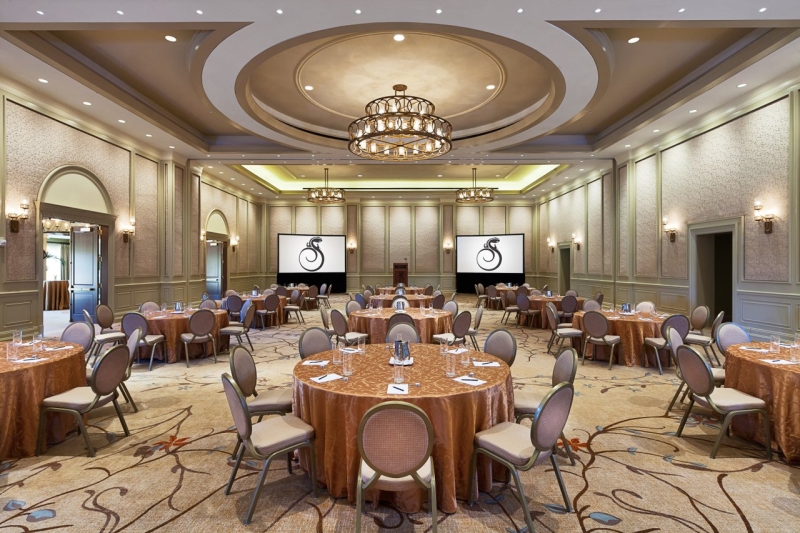
At the end of the day, a DMO wants their local community to thrive, and that means boosting business as much as possible. DMOs can increase the visibility and exposure of hotels, venues, and other local businesses by featuring them on their websites, social media channels, and campaign content, and by circulating positive testimonials and referrals within their network of media outlets, travel agents, associations, and other stakeholders.
Of course, a DMO’s recommendations are only as good as the businesses they’re promoting. That means when an event planner comes to a DMO for help sourcing event venues and partners, they aren’t going to refer just anyone; they’ll find the best of the best and make sure those businesses are front and center for planners to choose from and (hopefully) come back to for future events.
2. Increased Collaboration and Communication
A DMO can foster collaboration and cooperation among hotels and venues, by creating and managing platforms and forums to exchange information, ideas, and best practices. A DMO can foster collaboration and cooperation among hotels and venues, helping to align the efforts and interests of local businesses by providing guidance, leadership, and advocacy.
For planners, this means a more connected network of venues and vendors who are comfortable working with each other and can offer certain benefits for working within their preferred network of professionals.
3. Improved Offerings and Experiences
DMOs have their ears to the ground, both in the world of planners and hospitality professionals, making them excellent partners to help local businesses improve their offerings. With access to market intelligence, trends, and reviews of local services, DMOs can help hotels, venues, and service providers improve their performance based on post-event feedback.
This is great for local businesses and planners alike, as planners and event attendees benefit from the improvements DMOs help facilitate!
4. Innovative Achievements
A DMO can foster innovation and creativity among local hotels and venues by encouraging them to adopt new technologies, practices, and solutions that enhance their efficiency, productivity, sustainability, and overall offerings.
DMOs can also showcase the innovative achievements of hotels and venues by featuring them in their awards, publications, and events. The more publicity these innovations receive, the easier it is for planners to find interesting experiences to offer their attendees!
5. An Advocate for All
DMOs have the power to advocate for and represent the interests and needs of planners, attendees, local businesses, and residents. They act as a bridge between all these stakeholders, promoting a common vision and ensuring everyone is satisfied with the events at their destination.
That means that in addition to helping their local hotels, venues, and service providers attract business, they operate as advocates to help planners achieve the best experience for their attendees while considering the needs of residents, who may be affected by events happening near their homes.
By working in partnership with all these stakeholders, DMOs play an integral role in establishing long-term relationships and partnerships within the travel and tourism industry at their destination.
When Should You Work with a DMO?

If you’re on the fence about working with a DMO to help plan and coordinate your events, ask yourself these questions:
- Do I know my event location well enough to find the best venues, experiences, and local recommendations for my attendees?
- Should I try to build lasting partnerships with local venues and businesses so my future events in this location run more smoothly?
- Do I need help ensuring my event is well-received, not only by attendees but also by local businesses and residents?
- Am I interested in more unique, “outside the box” experiences for attendees?
- Do I have niche needs or specific requirements that set my event apart?
- Do I want FREE assistance connecting with local businesses, services, and offerings?
If you answered “yes” to any of these questions, a DMO is a great place to start!
With so many benefits of working with DMOs and absolutely no cost to event planners, there’s really no reason to go it alone. Whether you’re planning events in a familiar location or just exploring a new destination, DMOs have something to offer every planner in any situation.
This blog is written in partnership with Visit Loudoun .

Hope Salvatori
Hope is a Senior Content Marketing Associate who has been with Cvent for more than two years. She has 8 years of experience producing content for corporations, small businesses, associations, nonprofits, and universities. As a content professional, she has created content for a wide range of industries, including meetings and events, government and defense, education, health, and more.

More Reading
Live event streaming: best practices and steps to success, the discovery of a lifetime – atlantis bahamas, kempinski hotel cancun: the premier fusion of business innovation and leisure.
Subscribe to our newsletter
- Why We’re Different
- Join Our Team
- Strategic Alliances
- Why Tourism
- Strategic Planning
- Tourism Development
- Workforce Development
- Destination Management
- Destination Marketing
- Solimar DMMS
- Creative Portfolio
- Testimonials
- Tourism for Development Blog
- Case Studies
- Useful links

Why DMOs must be about Management, not just Marketing
Written by Veronic Santapa on October 11, 2022 . Posted in Blog .
DMOs are crucial organizations within the tourism industry. They were primarily established to promote destinations. However, with the rapid growth of tourism, the need for its sustainability and management of the sector eventually emerged. Therefore, whether DMOs should focus only on marketing or broaden their activities and be a management organization is part of the future agenda. At Solimar, we have seen time and time again why the M in DMO must also be about destination management, and not just destination marketing.
Let’s define what a DMO is, what roles they fulfill within a destination, and find out why these roles are mostly related to the management of the destination:
What is a DMO?
DMO stands for Destination Marketing/Management Organization. At times, the role of a DMO is mistakenly perceived to be limited to the marketing efforts, but in reality, DMOs contribute majorly to the development aspects of a destination too. Effectively, the UNWTO defines it as “the leading organizational entity which may encompass the various authorities, stakeholders, and professionals and facilitates partnerships towards a collective destination vision”. Thus, DMOs are not only about marketing, but also about management. But what do DMOs manage exactly?

Why are DMOs important?
Originally DMOs were established to competitively market the destinations by image-making, brandin g, and advertising what a place has to offer to tourists. However, in order for a destination to be successful, applying good marketing strategies or setting up an outstanding promotional campaign is no longer enough. Strategic management of the destination is also extremely important. Thus, it is clear that for the future of more sustainable tourism, DMOs must take the lead, as they hold the skills and the knowledge to support the destination through the management of tourism activities. Additionally, they have the ability and the tools to monitor the destination’s performance, allowing them to create the most suitable and sustainable approach to destination development.
To effectively manage a destination, DMOs should:
- Manage the variety of different stakeholders involved in tourism. This is also connected to the creation of a common website platform, where stakeholders can engage and contribute to the destination’s development
- Consult visitor-related sectors, namely, accommodation, food and other services related to tourism. To this regard, DMOs also facilitate the introduction of quality standards in service
- Help communities become more visible. Developed and advanced communities raise the sense of pride among their residents
- Support local economies
- Encourage sustainable development of tourism
As shown, apart from marketing and brand image creation, DMOs can truly contribute to developing sustainable destinations.

What is destination management?
DMOs are vital for touristic destinations, especially where national or local governments struggle to manage and control all the activities related to tourism. DMOs are especially crucial in the destinations with emerging economies and the tourism sector. The roles of DMOs involve destination development , management of all the available assets and monitoring of the tourism impacts at the destination. DMOs’ ultimate goal is to maintain the destination successful, competitive, and socially and economically developed, and in order to achieve that, it is necessary to create and implement the destination’s development plan.
Destination Development
DMOs’ main role is destination development. Destination development includes a range of different activities, such as marketing efforts, improvement or diversification of tourism products and quality of the services supplied. For DMOs, it is crucial to create a development plan which will lead all the activities in the short or long-term perspective. With the development plan, DMOs set the target goals and indicators for businesses, communication, marketing and product development. All the actions taken by the local stakeholders and the DMO itself should be in line with the destination development plan.
Much of Solimar’s work is oriented on destination development, as many destinations and, consequently, DMOs need facilitation and support at their early stage.

Management and coordination of destination assets
Every destination comprises a variety of resources provided by different organizations, and these resources need to be coordinated accurately to develop a competitive and sustainable tourism offer. The development and maintenance of a tourism destination is a complex process, and it requires a strategy capable of generating and sustaining synergy among all the various elements involved in the sector.
Local stakeholders, entrepreneurs, government, citizens and visitors have their own roles at the destination, and they are all part of the development process. It is the DMO’s prerogative to bring together representatives from each group to establish integrated and regular interactions and collaborations. These collaborations are essential to create the tourism product, the destination strategy, policy and crisis management plans to foster investments and funding and to evaluate the overall destination’s performance. Moreover, DMOs are also expected to provide services related to the improvement of physical and human resources, supply assistance and advice for hospitality and tourism businesses.
Solimar International’s examples of DMO and asset management
Solimar recognizes the value and importance of DMOs – collaborating with them is a key part of many of our projects. But most importantly, we strategically assist destinations where such institutions are inexistent, but are essential for a sustainable tourism development.
For example, in our current project USAID Visit Tunisia, we are supporting the country in differentiating its tourism offer by promoting six lesser known regions in the country. In most cases, tourism in Tunisia is solely managed by the national tourism organization. The lack of regional DMOs compromises these emerging destinations’ possibility to create and implement a tourism strategy and development plan adequate enough to support the emerging destination and its success.
For this reason, Solimar is assisting these destinations by encouraging and facilitating the dialogue between the public and private sector and the local communities at a regional level. Under the guidance of our expert Solimar team, the local stakeholders are collaborating and drafting destination development plans, which they are also using to advocate for a local DMO to be established with the help of the national tourism organization. Through this project, we are also supporting Destination Dahar , the first DMO in the country.

Why DMOs must monitor tourism impacts
As the tourism market and destinations change and evolve, they create an immediate urge of monitoring the impacts created by the tourism activities. This is crucial to evaluate and manage the change and respond to the challenges.
The main goals of monitoring are:
- To understand the effects of tourism
- To identify improvements or/and challenges. This will help the future planning and response
- To enable destinations to remain competitive
Another aim of monitoring is to find out how strategic goals of the destinations are met and measure the main indicators of the destination development. Monitoring impacts helps DMOs collect data on tourism activities. This facilitates the process of analyzing the tourism impacts and coming up with an adequate response, in particular to the most challenging ones. This way DMOs stay responsible, accountable, and fulfill their strategic goals.

DMOs track positive and negative impacts of tourism
Monitoring tourism impacts covers the following main areas: economic, social and environmental. Tourism impacts can be seen as negative and positive. Growing number of visitors positively contributes to the economic growth within the destination. However, it can also cause some threats to the cultural and natural assets of the destination if not managed and controlled properly. For example, in the case of cultural heritage, not well-managed visitor flows can cause damage to the sites.Or in the case of nature, tourism can cause major environmental challenges.
As seen above, monitoring helps DMOs to evaluate tourism impacts and take the appropriate measures. Various projects implemented by Solimar across the globe cover supporting development of DMOs and naturally, this involves facilitating them to acquire different roles, including monitoring the tourism impacts and effectively responding to it. Solimar’s ongoing project Bangladesh Ecotourism and Conservation Alliance envisages supporting one of the most important protected areas – the Sundarbans. With the project, Solimar works to implement a series of interventions in order to improve tourism and natural resources management in the area. One of the outcomes is creating a local DMO, which will unite the private and public sector and contribute to the conservation of the protected areas through sustainable governance.

So, why must DMOs make this shift?
Dmos facilitate the social and economic development of the destinations. this is especially important in the case of societies where tourism and the economy are in their emerging phase. in this process, fulfilling merely a marketing goal is not enough. through proper management and leadership, dmos can create inspiring and attractive destinations that will contribute to their socio-economic growth. , interested in discovering how solimar can support the management of your destination find more information about our services and training courses . and don’t forget to check out more solimar blog posts to learn everything about the importance of dmos: here and here ..
Blog by Veronica Santapa and Teona Zhuzhunadze
Tags: destination development , destination impacts , Destination Management Organization , Destination Marketing , Destination Marketing Organization , digital destination marketing , dmos , sustainable tourism , tourism management , tourism marketing

- Our Partners
- Board of Directors
- Roger Toussaint Award
- Community Photos
- Presentations
- MACVB Toolkit

CVB/DMO/DMC: What’s the Difference?
Christine ‘Shimo’ Shimaski | Articles
Section 1: Minnesota Lodging Tax
- Statute 469.190
- Lodging Tax History
- Summary of Attorney General's Opinions
Section 2: Organization Structure / Models
- CVB/DMO/DMC: What's the Difference?
- Organization Structures
- 4 Major Benefits of Working with a CVB
- DMO Organization Structure
- What does an Ideal DMO look like?
- Sample By-Laws
Section 3: MACVB Resources
- Tourism & Economic Impact Template
- Frequently Asked Questions
- Value Proposition for Meeting Planners
- Value Proposition for Community
- Hospitality and tourism facts (image 1)
- Hospitality and tourism facts (image 2)
Section 4: Public Policy
- MACVB Process for Taking a Position or Action
- Legislative Priorities/Position
- Sample City Ordinances
- Letter to City Council
- Public Policy/TID letter of support template
Section 5: Quick Links
Section 6: best practices / marketing, section 7: covid-19 resources.
- MN Critical Business List 3/26/2020
- FAQ for Executive Order 20-04 issued 3/16/2020
- Destination Organization Recovery Plan Outline
- Explore Minnesota's Week 2 Survey Results
- Explore Alexandria Tourism Lodging Support Document
(This is the 2nd Edition of this article, August, 2016)
It has long been said, the meetings and hospitality industry is an acronym soup on steroids! Industry jargon plagues us. Many of our associations and even corporations bear their initials first. Our professional organizations follow suit: PCMA, ASAE, IAEE, MPI, and CIC, just to name a few. In fact, we as an industry are so steeped in the use of acronyms that the Convention Industry Council (CIC) even provides a glossary , developed by the meetings, conventions and exhibitions industry through the Accepted Practices Exchange, of more than 1,400 terms, acronyms and abbreviations.
So, while those in the know might know just where to look to find the right resources and trusted partners, what if you are new to the industry or simply confused by all the alphabetical offerings.
And here is irony personified, even the organizations who are here to help you FIND just what you’re looking for in any destination add to the confusion. If you want to work with a destination expert to find the perfect fit for your next meeting do you contact a CVB, DMO or DMC?
In order to demystify the acronyms, the following brief primer explains the unique role and structure of convention and visitors bureaus (CVBs), destination marketing organizations (DMOs) and destination management companies (DMCs). You’ll never have to vaguely mutter initials under your breath again!
Convention & Visitors Bureaus (CVBs)
CVB experts have been helping meeting planners, business travelers and leisure tourists find the perfect location and fit for more than 100 years. They are the quintessential source of information about hotels, facilities, attractions, restaurants and activities, and should always be the first contact when planning your event. All CVBs are not-for-profit organizations primarily funded by their local governments, usually through a portion of hotel occupancy taxes. Their mission is to promote the long-term development and marketing of a destination, focusing on convention sales, tourism marketing, and services. As the tourism marketing arm of the destination, the CVB is responsible for creating public awareness about their destination and, ultimately, booking the meeting and event business that feeds the economic engine of the region. And, because their services are funded by local stakeholders, they are free to the planner.
Why would the local community invest its dollars in the CVB? Because travel and tourism enhances the quality of life in their destination by providing jobs, bringing in tax dollars for improvement of services and infrastructure, and attracting facilities like restaurants, shops, festivals, and cultural and sporting venues that cater to both visitors and locals. Travel and tourism is one of the world’s largest service exports and largest employers. In the United States, for example, travel and tourism is the third biggest retail sales sector, contributing more than $599.2 billion annually to the nation’s economy and generating $99.4 billion in tax revenues (2004 figures from the Travel Industry Association). Indeed, travel and tourism is an economic engine and CVBs are the key drivers.
To quantify the impact of the sales and marketing efforts of the CVB to its community, Destination Marketing Association International (DMAI) commissioned a study by Tourism Economics, an Oxford Economics Company, entitled Measuring the Impact of the DMO Group Sales Channel. The findings for the 2014 calendar year show 22.5 % of all group room night demand in the U.S. comes through CVB sales channels. The DMO share has increased 2%, with 41.5 million group room nights booked for future events.
Thousands of savvy meeting planners make the CVB their first point of contact. You can too by visiting empowerMINT.com for information about more than 135 top meeting destinations.
Destination Marketing Organizations (DMOs)
Essentially, the terms CVB and DMO are interchangeable. Referred to as CVBs for many decades, destination marketing organizations began identifying themselves as DMOs in an effort to convey a less bureaucratic connotation to the traveling public. Similarly, many CVBs, such as VisitPittsburgh , Meet Minneapolis and San Francisco Travel , have replaced the traditional “Convention & Visitors Bureau” portion of their name with a more descriptive, action-oriented name. Like many other re-named CVBs, “Experience Columbus” now identifies with the more contemporary DMO designation, but is still happy to acknowledge that it is the region’s convention and visitors bureau.
In 2005, the International Association of Convention & Visitor Bureaus (IACVB) changed its name to Destination Marketing Association International (DMAI), partly in recognition of its international members which are often structured and named differently than their US counterparts. DMAI’s website, e-information, and printed materials consistently refer to DMOs.
Every CVB is a DMO, but, technically, not every DMO is a convention and visitors bureau: some destinations have no meeting facilities and consequently market to leisure travelers only; some focus solely on meeting and convention business and leave transient tourism marketing to other entities.
Changing a brand takes time and most meeting professionals automatically refer to “CVBs,” so we anticipate continued use of “CVB” into the future. The important point is no matter what you call them, CVB/DMOs are uniquely qualified to be the best first point of contact for any meeting or event because of their comprehensive view of the destination, local expertise, extensive in-market relationships, and complimentary services.
Destination Management Companies (DMCs)
DMCs provide their services to the customer for a fee. According to ADME , the Association of Destination Management Executives , a DMC is a “professional services company possessing extensive local knowledge, expertise and resources, specializing in the design and implementation of events, activities, tours, transportation and program logistics.”
You may choose to engage the services of a DMC after you have confirmed the hotel and facilities in a specific destination to “manage” the destination for you. Planners may have a multi-year contract with a large destination management company to organize events and provide transportation regardless of the chosen destination, similar to how they contract with audio-visual providers and decorators.
DMCs are often valuable members and/or supporters of the local convention and visitors bureau.
As seasoned meeting professionals know, the success of any one program is contingent upon many successful collaborations and partnerships. A unique perspective comes into play from Annette Gregg, CMM, MBA, Vice President of AlliedPRA Corporate West, who also severed in a CVB management role for a number of years and understands the valuable connection between a DMC and a CVB.
“A DMC can play an important role in the relationship between the two destination arms when attracting and securing potential business leads for the market. First, DMCs provide CVBs with the latest, detailed information about destination products and assets. This can help a CVB frame the destination to a client, and create the best possible site inspection or familiarization (FAM) trip experience. AlliedPRA partners with CVBs on sales missions and tradeshow presence to provide valuable tools and information about the destination experience. Likewise DMCs rely on CVBs to drive business to the overall destination, so an organization will choose a particular location over another. The relationship also helps keep the destination top of mind in marketing efforts by both sides, often times as a collaborative effort for a dual win-win.”
While there are numerous reasons, the benefits of using a well-established DMC allows meeting planners to partner with a team of creative people who can offer firsthand destination knowledge, as well as local buying power. A reputable DMC vets its local program suppliers for ease of mind in regards to risk management, saving planners time spent researching, negotiating and qualifying suppliers on their own. They also provide added value through local connections and key suppliers relationship and can be a meeting planners’ best resource for creating an unforgettable destination experience. Getting the assistance of a local, knowledgeable resource significantly reduces risk and allows event planners to focus on more strategic aspects of their meetings.
Website Design and Development by W.A. Fisher Interactive . Report Problems
DESTINATION MARKETING ORGANIZATIONS
We sell and market destinations in international source markets
SERVICES OFFERED
Public Relations Travel Trade Sales Travel Trade Marketing Event Management Social Media Sustainability Services Strategic Partnerships Digital Management
Access to an international sales and marketing team
Destination Marketing Organizations (DMO) are an essential part of the tourism promotion industry worldwide. We have developed the right tools, skills, communication channels, and people to provide tailor-made solutions to increase the visibility of the destinations in their key international markets. Our core strength is our team. We’re a collective of people that understand how to use marketing and sales tools to drive more visitors to your destination. We’re experts at: PR Marketing Digital Events Travel Trade Our approach to destination marketing is comprehensive, from trade to consumer, media to digital, above the line, below the line, and everything in between. Whether you’re working on a single project, or you need a full representation in one international market or multiple markets, we can help.
Take a trip with us
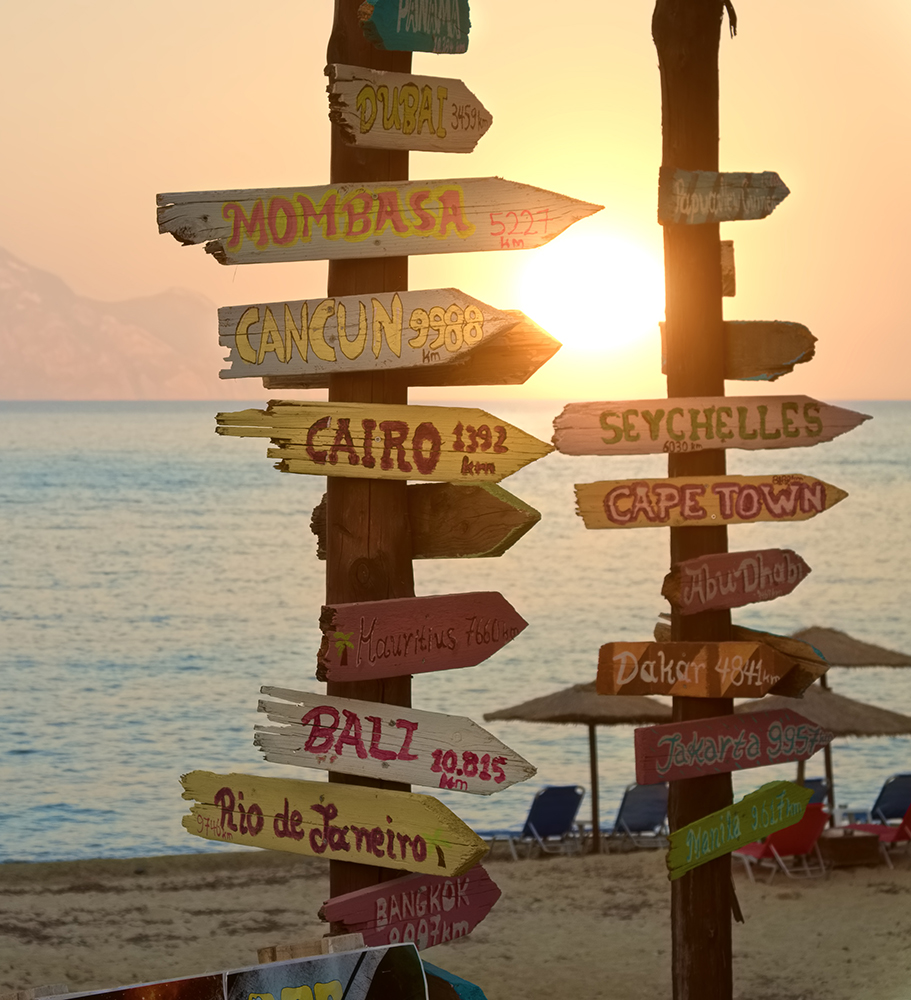
Our global sales and marketing team excels in the following areas
Public relations, travel trade sales, travel trade marketing, event management, social media, sustainability services, digital management.
- Example of our work

Arizona Office of Tourism (AOT)
Increase awareness of Arizona as a road trip destination for Spanish speaking markets focusing on video, editorial, and social media handles.
Mexico with some extension to Spanish speaking markets.
Joint partnerships with Arizona Office of Tourism, Eddy Warman (Lifestyle Radio and YouTube program), Tesla, and Grupo Editorial Expansion (largest editorial group in Mexico) to showcase Arizona as a premier road trip destination for the Mexican market. Collateral: Printed editorial in Life & Style magazine, social media amplification through Life & Style, AOT, and Tesla social handles. Online editorial Quién magazine and Radio and some video coverage Eddy Warman radio show.
More than $250,000 USD generated in media value.
German National Tourist Office
Ricarda Linder - Regional Manager The Americas
What our clients say about us
Tom Norwalk - President and CEO
GO TO WEBSITE
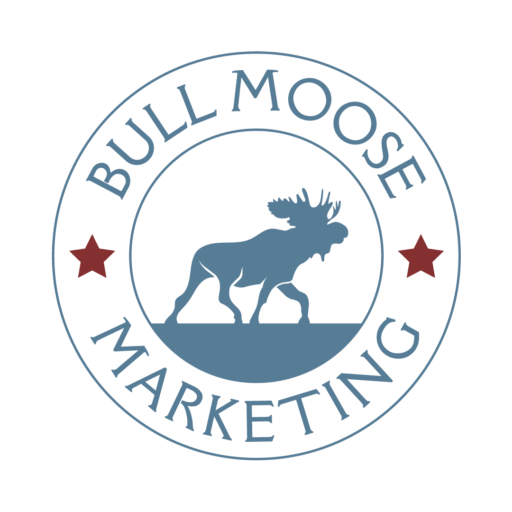
- Our Company
- Our Services
- Our Culture
- Our Industries
- Making Headlines
- Case Studies
- Website Showcase
- Free Resources
Help Articles
- News for DMOs
- Talk with us
Tourism , Strategy & Planning
Sustainable, value-based tourism and what it means for your destination, by nancy roque.
As of 2021, the concepts of sustainable tourism and value-based travel have taken hold, and people are now paying more attention to how tourism can affect destination communities. Sustainable tourism destinations must consider the economic, community and environmental weight of tourism. This type of destination marketing contrasts with the price-based travel that was popular in the past.
Destinations that practice sustainable, value-based tourism can expect to become an even more important community hub. DMOs must work to promote the economy, local history, attractions and nature. This trend is especially important because of the environmentally-friendly mindset that many people have adopted. As a result, DMOs must carefully craft a strategy that connects with today’s travelers.
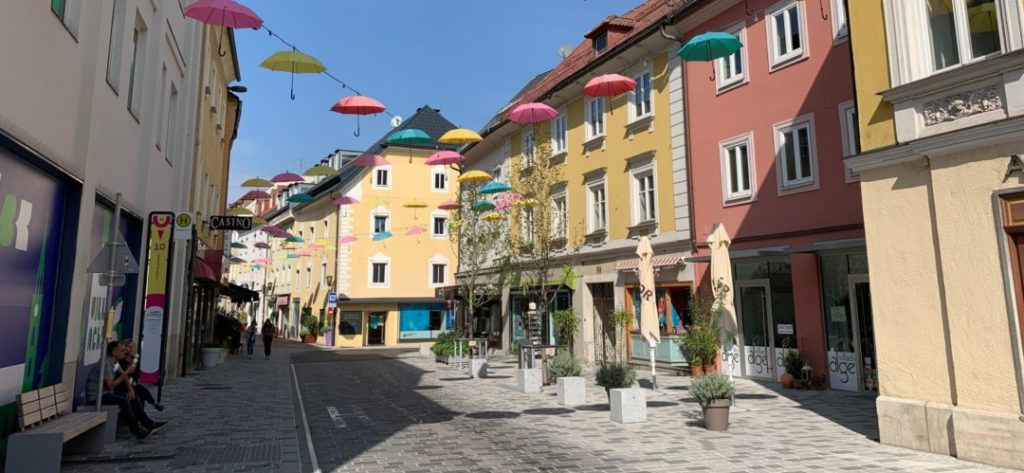
Jumpstart Funding
We put together the Ultimate Guide to Funding for DMOs
What is Value-Based Tourism?
Value-based tourism is one of the most popular types of travel these days. With people from all generations becoming more conscientious about sustainability and travel, they’re booking trips that offer some value to their lives.
By definition, value-based tourism offers clear differentiation factors that help the traveler understand the tangible value of visiting a specific location. Travelers understand that the tourism industry plays a role in economic development and want to travel to support local communities. And the value in value-based tourism refers to exactly that: wanting to mitigate potential damage caused by tourism by supporting the health of the local economy, community and environment.
Trends for Travelers
Sustainability plays a major role in the modern traveler’s decision to book trips based on value rather than getting the most bang for their buck.
With the world becoming more involved in environmental and economic health, travel trends are leaning toward types of tourism that suit these values. According to an article by EHL Insights , four new types of travel are becoming more popular than ever:
- Sustainable Tourism
- Food Tourism
- Experiential Tourism
- Wellness Tourism
While some travelers may choose to hit up local attractions and go sightseeing, the main purpose of their trips is no longer singularly focused on these activities. Instead, they want to stay eco-friendly, taste the local food and experience something that’s off the beaten path while taking the time to focus on their health too.
Need funding to keep your initiatives going? Check out our ON-DEMAND webinar to learn from the experts on how to stand out to funders and get the money your destination needs.
Implementing Sustainable Tourism in Your Marketing Strategy
To successfully market a tourist destination, implementing strategies from the sustainable tourism playbook is critical. To do so, it’s critical to know how your destination fits into the community and surrounding region. Not only that, but it’s essential to know how to best position the value that travelers will get from their trip. If you’re looking to attract the kind of travelers who are interested in paying more for better experiences, take a look at some of our top recommended tactics:
- Determine your target audience and personas so that all of your efforts work toward attracting the right types of travelers.
- Create a Community or Events page on your destination’s website to make a connection with other local happenings.
- Create marketing strategies that encourage all stakeholders to engage with your location, including local officials, hotels, restaurants and bars, hotels and venues.
- Create online and offline advertising campaigns that highlight the value that your location offers.
When DMOs properly position their destination, travelers can book the right trip for their values and preferences. What may have once been a destination fit for a quick stop on the road to elsewhere can be rebranded as a historical and entertainment hub that provides the type of value travelers are seeking.

Is Your Website Giving Visitors Trust Issues?
On-demand webinar.
Join Bull Moose Marketing’s Director of Digital Strategy & Brand Development, Megan McDonnell, and Lead Web Designer, Nuno Faustino, to learn about the principles and functionality your website needs in order to lay the groundwork for a high-performing, standout DMO website.
What Value-Based Tourism Really Means for Your Destination
With changing travel trends and the impact of COVID-19, the tourism industry has experienced a massive shift. Studies are predicting that there will be a continued “decline in international arrivals close to 70%, with recovery to pre-crisis levels not expected before 2023”
All of this points to a new mindset that DMOs and heritage tourism destinations need to adopt in order to survive: showcasing the value of their area and the good that tourism does for their community.
More than ever, communities need to have their voices heard. Overtourism may not be much of a problem these days, but it’s important to be mindful of how your community is affected by travelers. Creating a united front through strategic marketing efforts will allow you to showcase and highlight the unique offerings in your area in order to attract the attention of value-seeking tourists.
Elevate Your Destination with Sustainable, Value-Based Tourism
Whether you’re ready to begin implementing a marketing strategy or want to learn more about what value-based tourism means for your destination, it’s critical to stay on top of this emerging trend. Make sure you check out news related to destination marketing with resources like the DMO Download for more information on the latest travel and tourism trends. Learn more about heritage tourism and leveraging a marketing strategy for your destination with this on-demand webinar .
A creative organizational freak, Nancy has been working in the marketing realm since 2013 – specializing in content strategy and creation, SEO, and consulting. She is a lover of all things coffee flavored, except for black coffee. A feminist and ally. A writer of strange fiction, technical web content, long-form guides, and blogs that cover topics like SEO, tourism, medical subjects, and the modern workplace. Nancy prides herself on working closely with clients to create effective content and marketing strategies all while following through with some killer puns.
The Pro gressive Mark eter
These progressive marketing articles offer tactics and strategy inspiration for heritage tourism, economic development, destination marketing organizations and other industry segments working to make their communities better places to work and live.
Your Visitors Just Want to Feel Understood
When it comes to travel, your visitors want to feel understood. Destinations that can show empathy and understanding will gain their trust and loyalty.
What Does the Metaverse Mean for Rural Destinations?
With the Metaverse making tourism headlines everywhere, it’s vital for rural DMOs and CVBs to know what this trend means for their destination.
How to Build an Authentic Brand Promise with Your Destination’s Website
It’s important to make sure the first impression, and every touch-point in between, is one that’s authentic for your DMO, CVB or cultural nonprofit. Your visitors want to know that your area is worth the visit, and that they can trust that you’re marketing an experience that will match up to expectations.

Get Tourism Industry News & Case Studies Sent to Your Inbox
Enter your email address below to receive marketing case studies and customer stories, as well as 'The DMO Download', our weekly economic development and tourism news digest.
- The DMO Download
- Get in touch
- Visit our blog
What does the “M” of DMO mean for your destination?
Destination marketing strategy + strategic planning.

- Recent Posts
- Rebuilding with purpose: Ahousaht First Nation’s stewardship-led tourism development - 19 March 2024
- This beautiful place was fought for: Welcome to Načiks (Tofino) - 12 March 2024
- Corporate sustainability isn’t working: Here’s what the travel industry needs to do next - 5 March 2024
9 December 2016
1 comments(s).
“DMO” typically stands for “Destination marketing organization,” which has often been understood, in practice, to mean “promotion,” one of the 4 Ps of Marketing .
But times are changing. As Destination Think CEO Rodney Payne has said, “There has been a lot of discussion in recent years about destination marketing organizations (DMOs) morphing into destination management organizations.”
Anna Pollock, founder of Conscious Host , has added to the conversation with a list of suggested changes for DMOs to transform tourism, including the trend that the “M” in DMO will increasingly stand for management .
Many of today’s destination leaders, including those that participated in Forum 2016, recognize the reality that a focus on promotion is often not enough to succeed. They are now grappling with questions that challenge their organizations’ very existence.
- What is our DMO’s role?
- How can we remain relevant and maintain funding to do our best work?
- How can we adapt with changing visitor behaviour driven by technology?
- How can we create maximum value for both visitors and residents?
- How can we clearly communicate that value?
How are destination leaders responding to these questions?
Palau Visitors Authority is building a management plan that incorporates local culture, environmental sustainability and effective communication to locals and visitors alike.
In Iceland, there is a formal separation between destination promotion and management. The country’s exponential increase in visitation makes management an enormous priority for the future. Vice President of the European Tourism Council (ETC) ” spoke about Iceland’s tourism growth and the broader trends in Europe :
“International travel is on the rise, and people travel for leisure as never before. This is creating new challenges within the tourism sector and, in some cases, tensions that strain the relationship between the industry and the social and natural environment it relies upon. The industry has to develop approaches that facilitate addressing these challenges in a holistic, solution-focused manner. destinations have formal separations between those responsible for destination marketing and destination management.”
Hugh Riley, Secretary General of the Caribbean Tourism Organization , is also taking a holistic approach. He brings the term “DMO” one step further, replacing “management” with “development”:
“‘DMO’ means different things to different people, and in some parts of the world, a DMO is not a destination marketing organization, it is a destination management organization. In my humble opinion, DMOs are going to, in the very near future, become destination development organizations. They’re going to have to look at all aspects of a country’s needs and overall development, and try and meet those needs. DMOs are going to have to look at the kinds of metrics that we were just talking about. They’ll have to look at carrying capacity, but – and nobody wants to talk about this – they’ll have to look at the value of a tourist.”
What’s next for destinations moving toward the “M” of destination management?
Destination Think’s Chief Strategist William Bakker says that DMOs have a stark choice to make as they consider how they will lead their destination’s success.
“We can treat our destinations as commodities and consume what we have as fast as we can at the expense of our citizens and our environment, risking our long-term viability.
“Or we can offer experiences that transform people by creating memories for life, opening people’s minds, or simply strengthening bonds with loved ones. All while contributing to the quality of life for our citizens instead of taking it away. ”
Who can make this vision happen?
“Here’s the exciting part: The DMO is the best organization to lead this process. Define success, understand the implications of tourism, and define your destination’s identity and how you can deliver on it. We need to rally our industry to collaborate with destination-wide stakeholders, including our citizens. The implications are big as it will allow us to manage our brand and reputation not through promotion, but through the destination experience.
“I’ve worked with and spoken to hundreds of DMOs over the years. There is one common pattern among them. Strong leaders who are willing to take risks make strong DMOs. It’s not going to be easy. But it can be done. I’ve seen it happen.”
Is your DMO reevaluating its role? The destination marketing industry discussed the industry’s greatest challenges at Destination Think Forum 2016. Download the “Leading your destination into the future” whitepaper to join the conversation.
Featured image credit: Christian Schnettelker, Flickr
I switched to a management over pure marketing mindset regarding the DMO moniker some 15 years ago. Yes, as a DMOs we market our communities, but we also must be active advocates for the destination, be it in it’s development or preservation. Our Destination 2020 Strategic Plan developed in 2013 embraces that approach. It is a vital mindest for the success of DMOs.
Submit a Comment Cancel reply
Your email address will not be published. Required fields are marked *
Save my name, email, and website in this browser for the next time I comment.
Submit Comment
RELATED POSTS
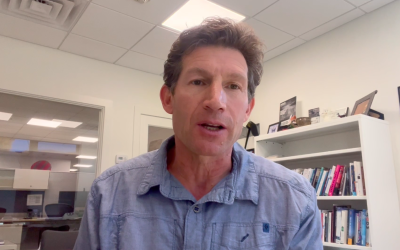
Corporate sustainability isn’t working: Here’s what the travel industry needs to do next
Mar 5, 2024
“You have a huge, powerful constituency that visits you. You can educate them and mobilize them, not to tell you not...

Cultivating connection: the role of Indigenous tourism in sustainability
Feb 20, 2024
“For me, the value, the sustainability and the value of Indigenous tourism is about my culture, my language, my...

Fighting “impact fatigue” to lead rural innovations: stories from Cariboo Chilcotin Coast
Feb 13, 2024
“One of the challenges that we've had in articulating sustainability and the values from the region is that those type...
You’ve found your partner for destination marketing
We work with the most innovative tourism boards in the world to create a vision for each of their destinations, solve business challenges and execute brilliant, integrated campaigns. The expertise we apply to that work is shared in the articles published here and in our DMO Matters newsletter.

Consent* Destination Think may store my data and contact me by email.*
Thank you! You will receive an email to confirm your subscription.
We value and respect your privacy. Click to read our privacy policy.
- Dictionary Home
- Recently Added
- Terms of Use
- Privacy Policy
DMO. Abr . 1. Destination marketing organization . 2. District marketing office.
To find the abbreviation, acronym, or term you’re looking for, use the Search box (below) or click on any letter (above).
This site is Copyright© 1999-2022. All rights reserved.
Serving the travel industry since 1999

IMAGES
VIDEO
COMMENTS
Definition and Role of a DMO in Tourism. A Destination Management Organization (DMO) plays a vital role in the tourism industry by serving as the primary entity responsible for managing, promoting, and developing a destination. DMOs are typically non-profit organizations or government agencies that work towards enhancing the overall visitor ...
Ever wondered what a DMO is and what do they do? It is important to know about destination management first. The tourism industry is a trillion-dollar global business. Over 1.2 billion people travel abroad every year to experience the world's diverse cultures and physical environments. Serious logistics are in play with this.
A destination marketing organization ( DMO) is an organisation which promotes a location as an attractive travel destination. DMOs are known as tourist boards, tourism authorities or "Convention and Visitors Bureaus". [1] They primarily exist to provide information to leisure travellers. Additionally, where a suitable infrastructure exists ...
In the dynamic world of travel and tourism, a Destination Marketing Organization (DMO), also known as a tourism board, tourism authority or visitors bureau, plays a pivotal role in shaping the perception, promotion, and success of a destination.They employ a wide range of strategies to attract visitors, boost local economies, and create memorable experiences.
Locations with an operating DMO promoting their destination tend to perform better economically and have greater visibility than those without. Because DMOs work with travel and event planners, local organizations, and residents who need travel or tourism-related assistance, they are a great source of referrals for local businesses. They help ...
A Destination Marketing Organization (DMO) or Convention & Visitors Bureau (CVB) is responsible for promoting a specific destination, such as a city, region, or country, to attract visitors and boost tourism. Their primary goal is to increase visitor numbers and enhance the economic impact of tourism in the area. Here are some of the critical ...
DMCs elevate the traveler's experience, offering customized adventures, while DMOs showcase a destination's charm to the world, boosting tourism and local economies. Together, these entities create a synergy that benefits both travelers and the destinations they explore. DMCs craft unforgettable moments, while DMOs showcase the allure of these ...
UN Tourism works to provide guidance and share good practices on policies and governance models aimed to effectively support the tourism sector at the different levels: national, regional and local. The development and management of tourism destinations requires a holistic approach to policy and governance. Governance has two specific dimensions:
A destination marketing organization (DMO) is defined as an organization that represents specific destinations with a marketing strategy that is designed for the travel and tourism or hospitality industry. A destination marketing organization aims to increase visitors, reservations, and bookings. A DMO can significantly influence a community's ...
What is a Destination Management Organization (DMO)? A destination marketing organization, or DMO, can help add value to your destination by developing a comprehensive promotional strategy.
During the panel, Welsh reported a "dire situation" for his U.S. Destinations International membership: A chunk of his 459 member DMOs are reporting a revenue freefall — some of up to 90%. The lack of inclusion in federal stimulus relief packages is an issue that the U.S. Travel Association and the American Society of Travel Advisors ...
The department works with industry partners including airlines, nightlife, shopping destinations, hotels and resorts, arts and culture facilities, attractions, and more to collaborate and provide ...
A Destination Marketing Organization (DMO) plays the role of planning and implementing tourism campaigns to attract tourists to a destination (Morrison 2013 ). It involves providing tourism-related information, enticing visits, facilitating bookings, and encouraging revisits. As more and more destinations choose to promote tourism, DMOs become ...
Sustainability is clearly a paramount issue in the travel industry, but its definition goes beyond traditional perception. While DMOs don't need a full end-to-end strategy now, every DMO - big and small - must start solidifying its sustainability strategies now. By creating the right ecosystem of mindset, tools and partners, DMOs of all sizes ...
Our industry's future lies here, but first, it needs to evolve to meet the challenge and continue to influence travel decisions. Our CEO, Rodney Payne, recently spoke on this topic. In this talk, he outlined a brief history of how destination marketing is changing at the macro level, and what your DMO can do about it.
In the Fall of 2020, Destination Analysts conducted a survey of over 240 DMO executives about change and disruption in the tourism industry, commissioned by and in partnership with BVK, as one part of their Destination Tailwind: A Strategy Series on transformational change. The findings from this research have important strategic implications for DMOs—from where […]
A DMO (Destination Marketing Organization) is responsible for promoting a destination to potential visitors and creating a positive image of their location. A DMO is a non-profit organization that works with various stakeholders, such as local businesses, government agencies, and media to help boost tourism and create the best experiences for those who visit and host events.
DMO stands for Destination Marketing/Management Organization. At times, the role of a DMO is mistakenly perceived to be limited to the marketing efforts, but in reality, DMOs contribute majorly to the development aspects of a destination too. Effectively, the UNWTO defines it as "the leading organizational entity which may encompass the ...
In the United States, for example, travel and tourism is the third biggest retail sales sector, contributing more than $599.2 billion annually to the nation's economy and generating $99.4 billion in tax revenues (2004 figures from the Travel Industry Association). Indeed, travel and tourism is an economic engine and CVBs are the key drivers.
and marketing team. Destination Marketing Organizations (DMO) are an essential part of the tourism promotion industry worldwide. We have developed the right tools, skills, communication channels, and people to provide tailor-made solutions to increase the visibility of the destinations in their key international markets.
Travelers understand that the tourism industry plays a role in economic development and want to travel to support local communities. And the value in value-based tourism refers to exactly that: wanting to mitigate potential damage caused by tourism by supporting the health of the local economy, community and environment. Trends for Travelers
1 Comments (s) "DMO" typically stands for "Destination marketing organization," which has often been understood, in practice, to mean "promotion," one of the 4 Ps of Marketing. But times are changing. As Destination Think CEO Rodney Payne has said, "There has been a lot of discussion in recent years about destination marketing ...
A definition of DMO as used in the travel industry. To find the abbreviation, acronym, or term you're looking for, use the Search box (below) or click on any letter (above).